Saturday, September 24 2022
This month's Round Robin Blog asks: What do you define in your writing about your characters and what do you leave to the reader’s intuition? Is there anything you never tell about a character?
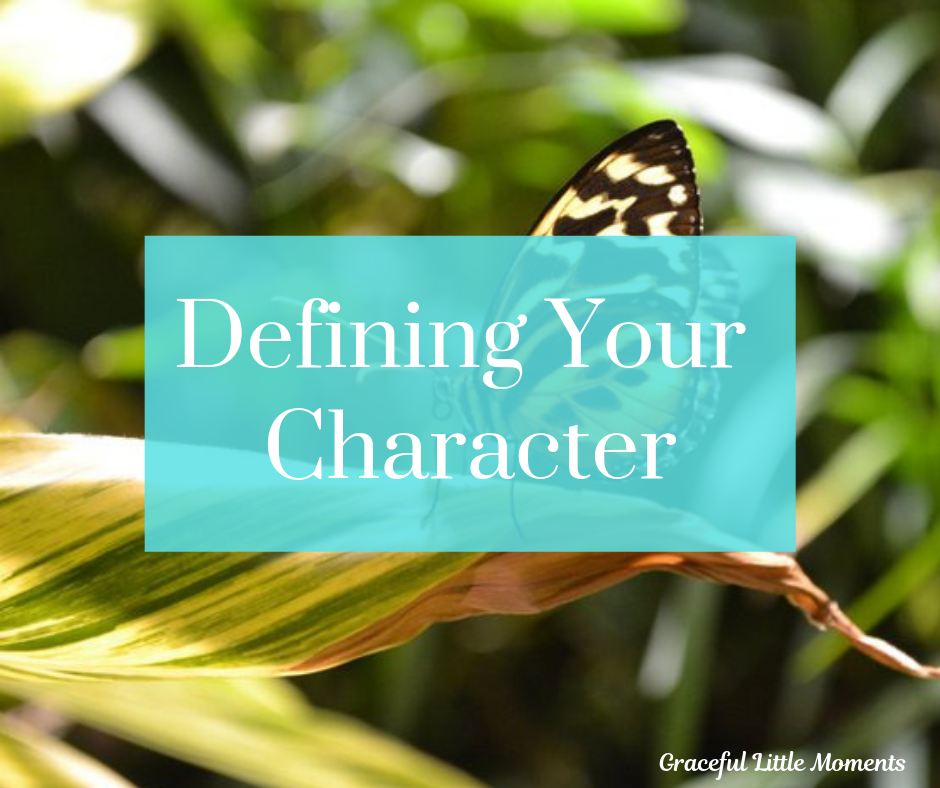 XX XX
The answer to this question depends on what we mean by define? For me, I’m going to assume that define means telling the reader what a character is like. Not necessarily what they look like but what kind of person they are. So, using this definition of define, I try NOT to define my characters but rather to show the reader what they are like.
XX
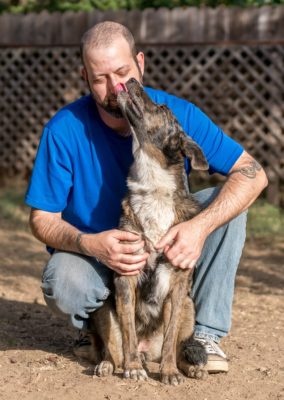 For the obvious, rather than tell the reader that Mac had a soft spot for dogs, I show him rescuing an abandoned puppy. I follow that up with how he treated it in the days that followed, in his efforts to find the puppy’s owner, and his growing dismay to find he didn’t want to find the owner. Now the reader knows how Mac feels about dogs in general and this one in particular without me specifically defining his feelings toward the dog. For the obvious, rather than tell the reader that Mac had a soft spot for dogs, I show him rescuing an abandoned puppy. I follow that up with how he treated it in the days that followed, in his efforts to find the puppy’s owner, and his growing dismay to find he didn’t want to find the owner. Now the reader knows how Mac feels about dogs in general and this one in particular without me specifically defining his feelings toward the dog.
XX
For the less obvious, things like loyalty, chivalry, honesty, kindness, or their opposites: disloyalty, deceiving, mistreating  women or ignoring people in need, I again try to show the reader what’s in my character’s hearts by their actions. If I have my character brush angrily past an old woman fumbling with her parcels because he is in a hurry or perhaps doesn’t even notice her, then the reader gets a pretty good idea of this person’s character without me saying he was callous or rude. Just as I could have a well-dressed business woman in a hurry women or ignoring people in need, I again try to show the reader what’s in my character’s hearts by their actions. If I have my character brush angrily past an old woman fumbling with her parcels because he is in a hurry or perhaps doesn’t even notice her, then the reader gets a pretty good idea of this person’s character without me saying he was callous or rude. Just as I could have a well-dressed business woman in a hurry  for an important interview stop to help a distressed child who is obviously lost. Knowing it will mean missing the interview but stopping anyway. Now the reader has a good grasp on the type of person this woman is. Maybe she’s a mother and could relate to that child’s distress, but perhaps she’s not which makes her actions doubly revealing. The same goes for four-legged characters. One might prance eagerly, tail wagging furiously, or cower uncertainly or snarl menacingly. All show the reader what kind of dog this is, at least in this situation. for an important interview stop to help a distressed child who is obviously lost. Knowing it will mean missing the interview but stopping anyway. Now the reader has a good grasp on the type of person this woman is. Maybe she’s a mother and could relate to that child’s distress, but perhaps she’s not which makes her actions doubly revealing. The same goes for four-legged characters. One might prance eagerly, tail wagging furiously, or cower uncertainly or snarl menacingly. All show the reader what kind of dog this is, at least in this situation.
XX
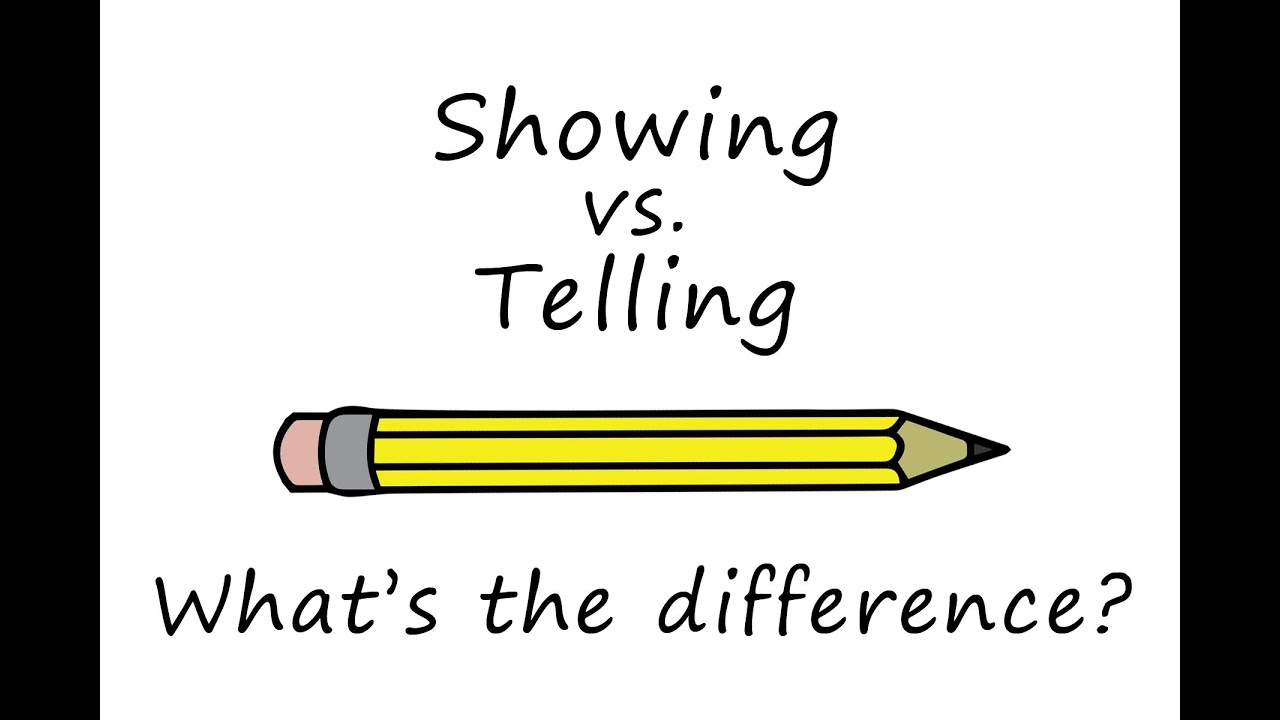 It’s a case of show rather than tell, but obviously the reader does need to know this character so they will understand why the character makes the choices they make. You might have a character which a history of abuse and it’s important for your reader to know this so they will understand why the character avoids certain people and situations. Or perhaps a character grew up dirt poor which explains It’s a case of show rather than tell, but obviously the reader does need to know this character so they will understand why the character makes the choices they make. You might have a character which a history of abuse and it’s important for your reader to know this so they will understand why the character avoids certain people and situations. Or perhaps a character grew up dirt poor which explains  his or her pinching every penny until it squeals, or having finally hit the big time doing everything possible to erase their origins – like introducing friends to their parents or taking a college friend home for the weekend. Knowing where a character comes from not only helps the reader to understand choices made, but also to feel empathy for the character, or a sense of satisfaction or triumph for a success that might have been easy for someone else but was monumental for your character. his or her pinching every penny until it squeals, or having finally hit the big time doing everything possible to erase their origins – like introducing friends to their parents or taking a college friend home for the weekend. Knowing where a character comes from not only helps the reader to understand choices made, but also to feel empathy for the character, or a sense of satisfaction or triumph for a success that might have been easy for someone else but was monumental for your character.
XX
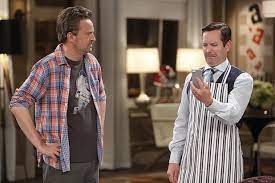 Then there are the quirks a character might have. How much better is it to show the character carefully organizing their catch-all drawer, or hurrying around behind a roommate rearranging everything the roommate tossed haphazardly as they went through the apartment, than to flat out define this character as OCD? Or the character who bites their fingernails whenever they are stressed, or cowers when lightning zaps across the sky? A good author does not need to define those quirks – just show the reader and let the reader figure it out. Then there are the quirks a character might have. How much better is it to show the character carefully organizing their catch-all drawer, or hurrying around behind a roommate rearranging everything the roommate tossed haphazardly as they went through the apartment, than to flat out define this character as OCD? Or the character who bites their fingernails whenever they are stressed, or cowers when lightning zaps across the sky? A good author does not need to define those quirks – just show the reader and let the reader figure it out.
XX
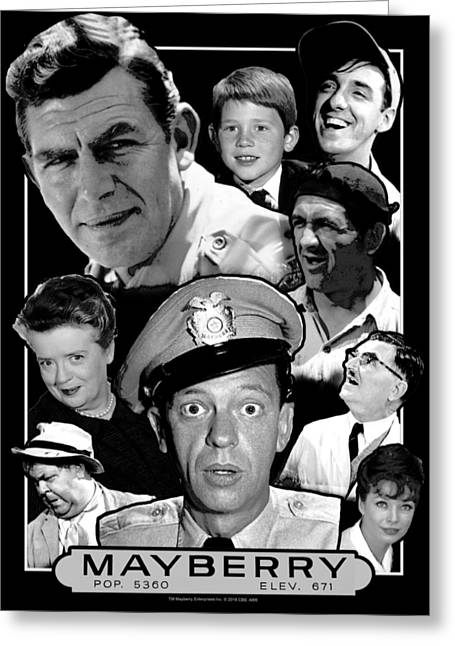 But showing a character’s personality without telling, also lets the reader develop their own relationship with that character rather than the author telling the reader how they should feel about them. In Mayberry RFD, no one tells the viewer that everyone loves Aunt Bea because she is kind, gentle, loving, thoughtful, the viewer gets to see Aunt Bea in action, supporting Andy, helping to rear Opie, interacting with townsfolk. We didn’t have to be told what kind of officer Barney Fife is, or that Otis has a problem with alcohol, we SEE them acting these characters out. That’s how I prefer to present my characters in my books. Not defining who they are, or what they are like in my own words but presenting them in a way the reader can see for themselves and form their own relationships with the characters. But showing a character’s personality without telling, also lets the reader develop their own relationship with that character rather than the author telling the reader how they should feel about them. In Mayberry RFD, no one tells the viewer that everyone loves Aunt Bea because she is kind, gentle, loving, thoughtful, the viewer gets to see Aunt Bea in action, supporting Andy, helping to rear Opie, interacting with townsfolk. We didn’t have to be told what kind of officer Barney Fife is, or that Otis has a problem with alcohol, we SEE them acting these characters out. That’s how I prefer to present my characters in my books. Not defining who they are, or what they are like in my own words but presenting them in a way the reader can see for themselves and form their own relationships with the characters.
XX
So, my answer to the second question is I try to leave it all to the intuition of the reader. I want the reader to care about my characters because of how I’ve presented them, not because I have to tell them they need to care. I hope there is nothing about my characters I have failed to reveal, however. But that’s just me. Hop on over and see how my fellow monthly Round Robin Blog Hoppers approach the subject.
 Connie Vines Connie Vines
Dr. Bob:
A.J. Maguire
Robin Courtright
Helena Fairfax
Saturday, September 10 2022
 As I write this, two things are on my mind. Tomorrow’s upcoming day of remembrance for all who lost their lives in the 9/11 attacks on our home turf by a fanatical regime dedicated to bringing America to her knees and the death just two days ago of a woman who embodied so much of what is good in this world. As I write this, two things are on my mind. Tomorrow’s upcoming day of remembrance for all who lost their lives in the 9/11 attacks on our home turf by a fanatical regime dedicated to bringing America to her knees and the death just two days ago of a woman who embodied so much of what is good in this world.
XX
Social media has been flooded by images, poems and memories of Queen Elizabeth II. For seventy years she reigned with grace, dignity and aplomb in a world filled with anger, hate and blame. While Britain is a democracy, still she represented all that was good about Britain's influence in our world. I 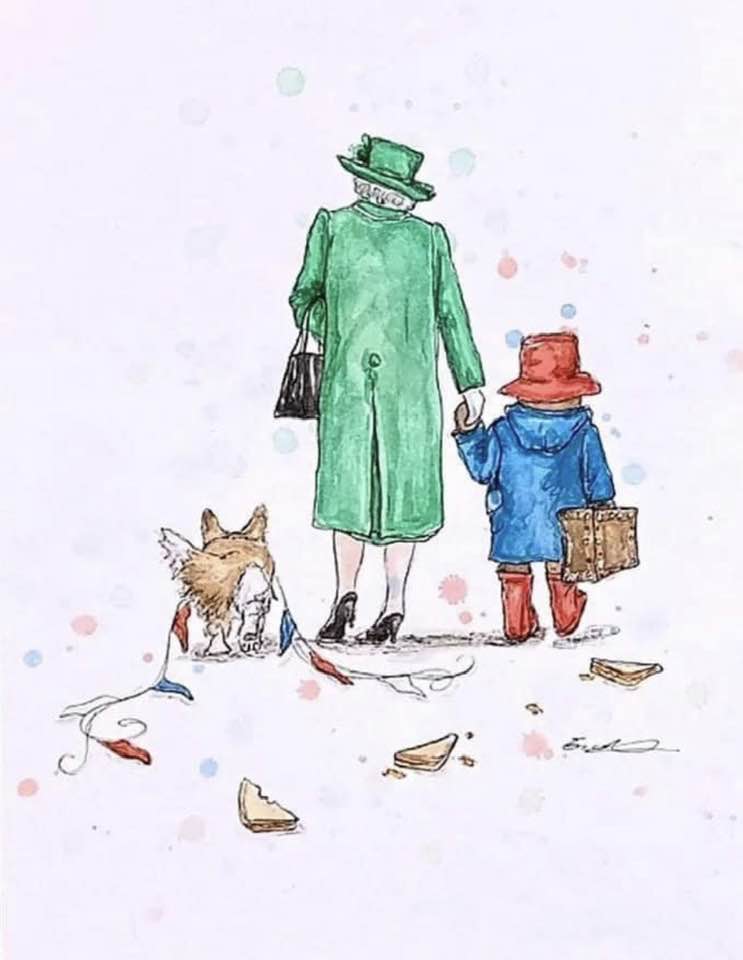 am old enough to remember when she became the queen. Although our family didn’t have a television yet I was aware of it through pictures in the local papers and discussions among my parents and their friends. And Queen Elizabeth II has been there, a quiet, yet influential part of our world ever since. I’m an American, so she isn’t technically, ‘my’ queen, and yet . . . It felt like she would always be there and now she is gone. Her son, Charles III sits in her place and only time will tell if he will grace the monarchy with the charm and poise his mother showed for so many years. From tea with Paddington, to visits of state, her beauty and wisdom showed through and touched all who had the good fortune to spend time in her presence. The closest I ever came was watching the changing of the guard outside Windsor Castle while she was actually in residence, and staying at the bed and breakfast housed in an old gatehouse attached to the castle grounds. But just knowing she was part of the world I enjoyed was a blessing. She will be mourned by millions and dearly missed. am old enough to remember when she became the queen. Although our family didn’t have a television yet I was aware of it through pictures in the local papers and discussions among my parents and their friends. And Queen Elizabeth II has been there, a quiet, yet influential part of our world ever since. I’m an American, so she isn’t technically, ‘my’ queen, and yet . . . It felt like she would always be there and now she is gone. Her son, Charles III sits in her place and only time will tell if he will grace the monarchy with the charm and poise his mother showed for so many years. From tea with Paddington, to visits of state, her beauty and wisdom showed through and touched all who had the good fortune to spend time in her presence. The closest I ever came was watching the changing of the guard outside Windsor Castle while she was actually in residence, and staying at the bed and breakfast housed in an old gatehouse attached to the castle grounds. But just knowing she was part of the world I enjoyed was a blessing. She will be mourned by millions and dearly missed.
XX
 So too, are thousands still missed who perished on September 11, 2001. Can it really be twenty-one years since that day? It sometimes feels like it was just yesterday. Working in an environment without outside connectedness, my son’s phone call was my first shocking realization of what was happening in New York, but very quickly the market closed and my company began streaming CNN onto our desktops. The reality of the attack, the utter devastation, the images So too, are thousands still missed who perished on September 11, 2001. Can it really be twenty-one years since that day? It sometimes feels like it was just yesterday. Working in an environment without outside connectedness, my son’s phone call was my first shocking realization of what was happening in New York, but very quickly the market closed and my company began streaming CNN onto our desktops. The reality of the attack, the utter devastation, the images  of those planes, of firemen rushing into buildings they would never come out of, people fleeing from waves of dust and later, the words overheard from the brave men on flight 93 who decided enough was enough. It all feels so fresh and real and awful, even all these years later. Maybe it's the harshness and raw hurt that stand out in our memories. I can only imagine my parents shock and disbelief on hearing FDR on the radio announcing a day that would live in infamy and how those words might have stuck in their minds for the rest of their years. Almost as if it were yesterday, I recall the stunned silence in the halls of my high school when we were dismissed early after our young and much loved president JFK’s assassination. These memories of lost innocence, however old we were when they happened, stand out in our souls as changing points in our lives. Social media will be awash once again with reminders of that awful day in September so recent to most of us and yet before all those in my grandchildren's generation were even born. I pray they will not be ripped so harshly from their naïveté as the generations before them. of those planes, of firemen rushing into buildings they would never come out of, people fleeing from waves of dust and later, the words overheard from the brave men on flight 93 who decided enough was enough. It all feels so fresh and real and awful, even all these years later. Maybe it's the harshness and raw hurt that stand out in our memories. I can only imagine my parents shock and disbelief on hearing FDR on the radio announcing a day that would live in infamy and how those words might have stuck in their minds for the rest of their years. Almost as if it were yesterday, I recall the stunned silence in the halls of my high school when we were dismissed early after our young and much loved president JFK’s assassination. These memories of lost innocence, however old we were when they happened, stand out in our souls as changing points in our lives. Social media will be awash once again with reminders of that awful day in September so recent to most of us and yet before all those in my grandchildren's generation were even born. I pray they will not be ripped so harshly from their naïveté as the generations before them.
XX
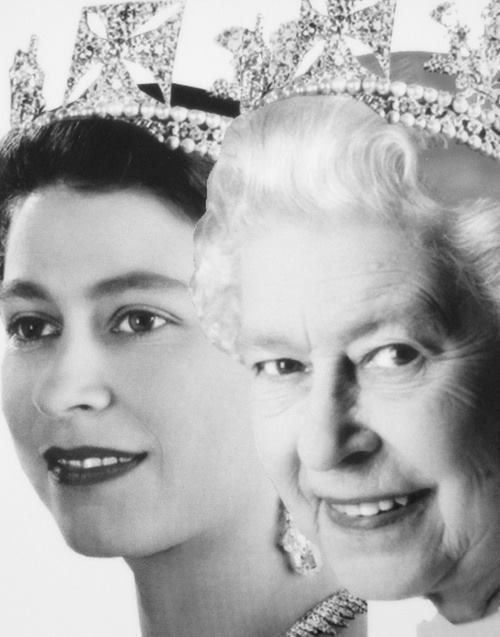 So today and in the days to come, I remember a Queen who reigned with charity and poise, through good times and bad, in the face of personal tragedy and national turmoil. God speed her soul and may God bless Charles who now wears the crown and has to live up to the example she set. So today and in the days to come, I remember a Queen who reigned with charity and poise, through good times and bad, in the face of personal tragedy and national turmoil. God speed her soul and may God bless Charles who now wears the crown and has to live up to the example she set.
 And God bless all those who still mourn the loss of husbands, wives, fathers, mothers, sisters, daughters, sons, brothers and friends who lost their lives 21 years ago and all those who stepped forward to serve since and paid the price. Freedom has never been free and I write this in honor of all those who paid that price. And God bless all those who still mourn the loss of husbands, wives, fathers, mothers, sisters, daughters, sons, brothers and friends who lost their lives 21 years ago and all those who stepped forward to serve since and paid the price. Freedom has never been free and I write this in honor of all those who paid that price.
XX
Take a moment, if you will, to be thankful for the blessings you have and to tell those who make your life the blessing it is, that you love and cherish them.
Friday, August 26 2022
 August’s Round Robin Blog topic is: How do you create your characters--their quirks, habits, values, and what part they will play in the story, etc.? Do you have a process or do they come to you instinctively? August’s Round Robin Blog topic is: How do you create your characters--their quirks, habits, values, and what part they will play in the story, etc.? Do you have a process or do they come to you instinctively?
XX
For me, the answer to this question is a mixed bag. Sometimes I create the characters to fit the plot that has taken over my imagination, other times the characters are born first and they drive the plot. And sometimes a character will just appear out of nowhere in the middle of a story, or be created when a need for such a character presents itself.
XX
 If I already have a plot, or at least an idea for a story, then the characters I create end up with habits, values, jobs and backgrounds to support their part in the story. When I wrote my time travel, I needed to give my time-traveling heroine a backstory that supported her understanding of the era in which she found herself, so she became a history teacher. When I was writing The Candidate, I needed my protagonist to have a career that would support his candidacy for president, thus he began his adult life as a soldier who returned to school to become a lawyer and then ran for a state house of representative seat before moving on the US Senate. When I needed a character who suffered PTSD and survivor guilt, I created a woman born to a single mom who went into the military service as a way to get a college education and ended up being sent to serve a few years in a war zone, while her husband and two sons waited back home. If I already have a plot, or at least an idea for a story, then the characters I create end up with habits, values, jobs and backgrounds to support their part in the story. When I wrote my time travel, I needed to give my time-traveling heroine a backstory that supported her understanding of the era in which she found herself, so she became a history teacher. When I was writing The Candidate, I needed my protagonist to have a career that would support his candidacy for president, thus he began his adult life as a soldier who returned to school to become a lawyer and then ran for a state house of representative seat before moving on the US Senate. When I needed a character who suffered PTSD and survivor guilt, I created a woman born to a single mom who went into the military service as a way to get a college education and ended up being sent to serve a few years in a war zone, while her husband and two sons waited back home.
XX
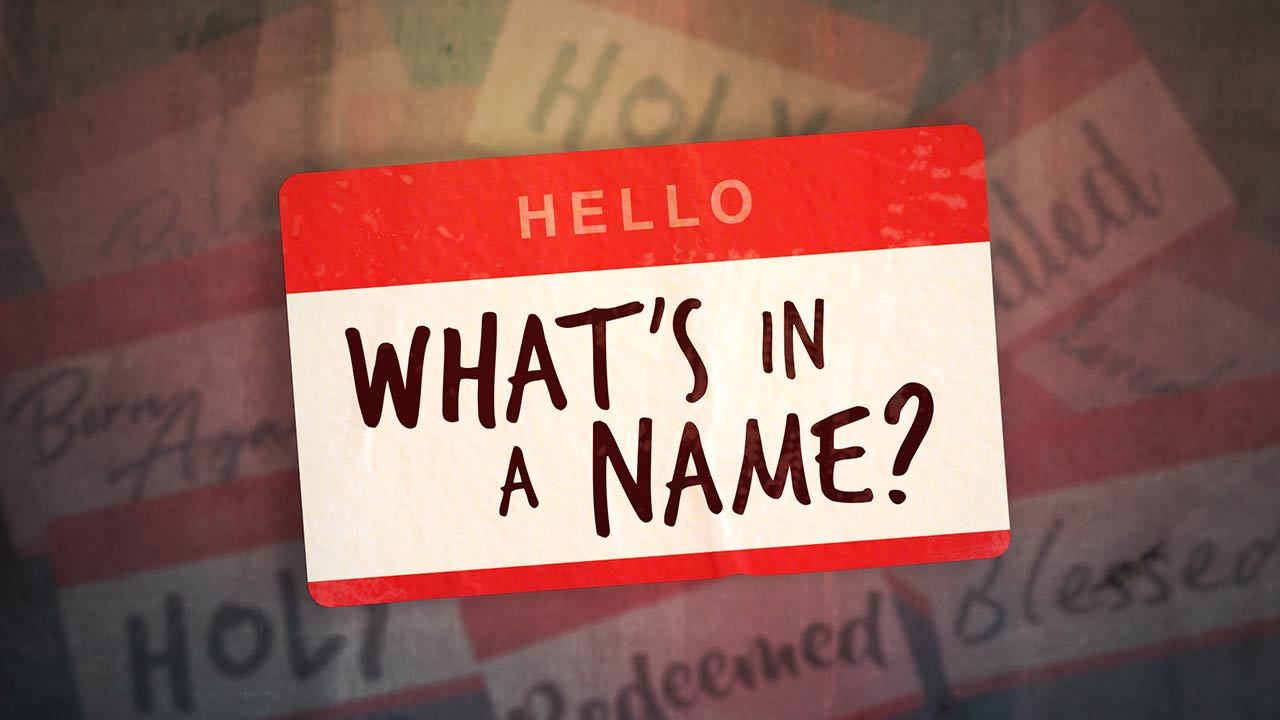 For the stories where the characters come first, I’m not sure I have a set method, but I usually start with a name which isn’t always as easy as you might think. This name will depend somewhat on what kind of a character I am creating. If he’s a pompous, egotistical person, his name needs to fit that image. In my current project I have such a character. He’s not my main character, but he’s pretty impressed with himself and I named him Malcolm Beauregard Riggs III, which he likes to use ALL of. No one would ever think of calling him Mal, or Beau, or even Riggs. His son, a very different sort of man, who happens to be my main character and bears the burden of being Christened Malcolm Beauregard Riggs IV is called Mac by one and all. I try not to stereotype my female characters so their names are chosen less for image and more for what sounds nice in combination with whatever surname she carries and has a convenient and pleasant nickname. For the stories where the characters come first, I’m not sure I have a set method, but I usually start with a name which isn’t always as easy as you might think. This name will depend somewhat on what kind of a character I am creating. If he’s a pompous, egotistical person, his name needs to fit that image. In my current project I have such a character. He’s not my main character, but he’s pretty impressed with himself and I named him Malcolm Beauregard Riggs III, which he likes to use ALL of. No one would ever think of calling him Mal, or Beau, or even Riggs. His son, a very different sort of man, who happens to be my main character and bears the burden of being Christened Malcolm Beauregard Riggs IV is called Mac by one and all. I try not to stereotype my female characters so their names are chosen less for image and more for what sounds nice in combination with whatever surname she carries and has a convenient and pleasant nickname.
XX
Once upon a time I was trying to be careful never to use a name possessed by a family member or friend, but then one of my granddaughters asked to have a character named after her. Now I’ve managed to include all of t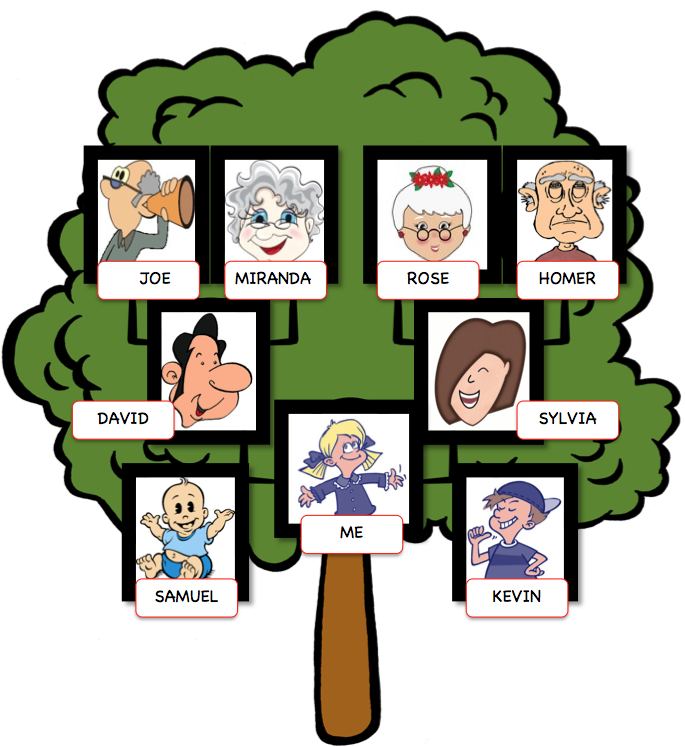 hem. I have lost two wee grandsons, one to SIDS and the other to a playground accident so all of my books now feature a Sam, Samuel, or Sammy and a Philip appearing somewhere, usually as secondary characters. I’ve also included two friends who were delighted to find they had namesakes in my books. I try to match names to the ethnicities, heritage, cultures and the time in history they inhabit. Nearly all my characters have a nickname that goes well with their surname. And if they have a significant other, they might also acquire a pet name. Another tip I got from several writers earlier in my writing career was not to have repetitive starting letters that can confuse the readers. Thus, the same story will not feature Anna, Andy, Amanda and Anthony (unless maybe he’s just called Tony.) And one last thing about names, if the character is simply a placeholder, who fills a needed function but isn’t that important in their own right, they are never given a name, but rather referred to as ‘the waiter, officer, doctor, his teacher or her secretary. hem. I have lost two wee grandsons, one to SIDS and the other to a playground accident so all of my books now feature a Sam, Samuel, or Sammy and a Philip appearing somewhere, usually as secondary characters. I’ve also included two friends who were delighted to find they had namesakes in my books. I try to match names to the ethnicities, heritage, cultures and the time in history they inhabit. Nearly all my characters have a nickname that goes well with their surname. And if they have a significant other, they might also acquire a pet name. Another tip I got from several writers earlier in my writing career was not to have repetitive starting letters that can confuse the readers. Thus, the same story will not feature Anna, Andy, Amanda and Anthony (unless maybe he’s just called Tony.) And one last thing about names, if the character is simply a placeholder, who fills a needed function but isn’t that important in their own right, they are never given a name, but rather referred to as ‘the waiter, officer, doctor, his teacher or her secretary.
XX
 So, now my character has a name. But they are as unformed as a newborn baby. They need to grow into the character that’s going to drive the plot. In my romances I needed to create two characters of equal importance who would be attractive to each other and yet possess some conflicting traits that they would have to overcome to find their happy ever after. In Trusting Will, my heroine was a war widow who had vowed never to get involved with a man who put his life in harm’s way on a regular basis. That hero turned out to be state motorcycle cop in an era where just wearing the uniform often means having a target on your back, never mind that his official unit only had two wheels. Sometimes it fits best if the character is an only child, but I also have a book on traits of So, now my character has a name. But they are as unformed as a newborn baby. They need to grow into the character that’s going to drive the plot. In my romances I needed to create two characters of equal importance who would be attractive to each other and yet possess some conflicting traits that they would have to overcome to find their happy ever after. In Trusting Will, my heroine was a war widow who had vowed never to get involved with a man who put his life in harm’s way on a regular basis. That hero turned out to be state motorcycle cop in an era where just wearing the uniform often means having a target on your back, never mind that his official unit only had two wheels. Sometimes it fits best if the character is an only child, but I also have a book on traits of  Birth Order which is interesting, all by itself, but offers insights into the differences between the way a first born, middle child or baby in the family approaches life in general or problems and roadblocks in specific, which is handy to know as your character runs into trouble. As my characters begin to take on personalities, they acquire careers that fit the needs of either the plot or the conflicts with other characters or both. Sometimes it’s handy to give them hobbies that fill a need in the story, like my grounded pilot who learned carpentry from his grandfather and is currently working on a construction crew, or my volunteer firefighter who ends up delivering a baby in the middle of a hurricane. Birth Order which is interesting, all by itself, but offers insights into the differences between the way a first born, middle child or baby in the family approaches life in general or problems and roadblocks in specific, which is handy to know as your character runs into trouble. As my characters begin to take on personalities, they acquire careers that fit the needs of either the plot or the conflicts with other characters or both. Sometimes it’s handy to give them hobbies that fill a need in the story, like my grounded pilot who learned carpentry from his grandfather and is currently working on a construction crew, or my volunteer firefighter who ends up delivering a baby in the middle of a hurricane.
XX
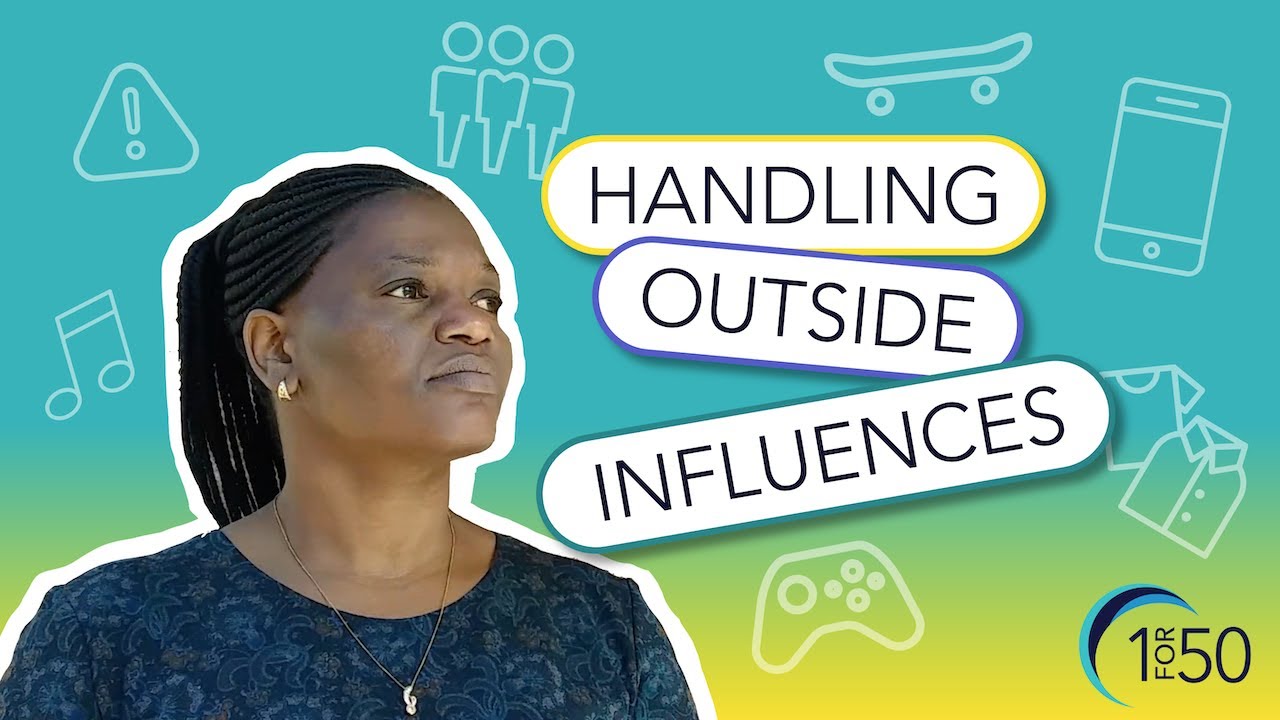 Sometimes it’s influences from outside that give a protagonist their drive and goals. Jesse Quinn, who idolized her dad, but was totally under her mother’s society matron thumb, did her best to be a model daughter and wife . . . until she discovered her ‘Model’ husband, chosen for her by her mom, had been cheating on her nearly from their wedding day. Even before the ink was dry on the divorce decree she doubled down, went to the police academy and followed in her father’s footsteps in spite of pressure from her mother, and is more than proud of the person she has become by taking charge of her own life and decisions. Sometimes it’s influences from outside that give a protagonist their drive and goals. Jesse Quinn, who idolized her dad, but was totally under her mother’s society matron thumb, did her best to be a model daughter and wife . . . until she discovered her ‘Model’ husband, chosen for her by her mom, had been cheating on her nearly from their wedding day. Even before the ink was dry on the divorce decree she doubled down, went to the police academy and followed in her father’s footsteps in spite of pressure from her mother, and is more than proud of the person she has become by taking charge of her own life and decisions.
XX
 And then there are those exceptional characters who just arrive on stage, totally unexpected until that moment and seem to create themselves. In Keeping His Promise, a secondary character, running for mayor wanted the town to turn an old run-down plantation willed to the town into a half-way house for young men who’d gotten into trouble with the law but wanted to get squared away when they finished serving their time, yet had nowhere to go and no job offers. My heroine was a reporter with a ‘Not-in-my-backyard’ philosophy. Part of the conflict in this romance was the hero is a small-town cop who thought the half-way/second chance house was an excellent idea. Then, out of nowhere comes Lucas Trevlyn, name and all, who was introduced to our reluctant heroine as the man who would be running this halfway house. He arrived on the scene complete with a history that backed up his credentials and he was so charming he won over both me and my heroine. He was such a compelling character in that book, I am now writing his story which will be out next year. And then there are those exceptional characters who just arrive on stage, totally unexpected until that moment and seem to create themselves. In Keeping His Promise, a secondary character, running for mayor wanted the town to turn an old run-down plantation willed to the town into a half-way house for young men who’d gotten into trouble with the law but wanted to get squared away when they finished serving their time, yet had nowhere to go and no job offers. My heroine was a reporter with a ‘Not-in-my-backyard’ philosophy. Part of the conflict in this romance was the hero is a small-town cop who thought the half-way/second chance house was an excellent idea. Then, out of nowhere comes Lucas Trevlyn, name and all, who was introduced to our reluctant heroine as the man who would be running this halfway house. He arrived on the scene complete with a history that backed up his credentials and he was so charming he won over both me and my heroine. He was such a compelling character in that book, I am now writing his story which will be out next year.
XX
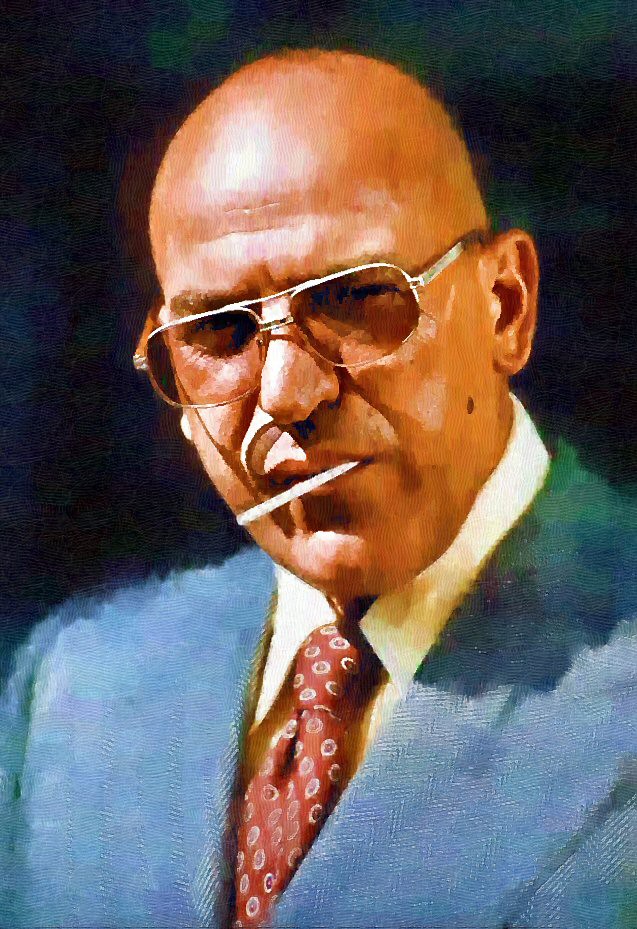 Bottom line, your characters must fill the needs of the story-line, while being real. Heroes with no faults are as boring as white hospital sheets. All your characters, both good guys and bad, need to possess both positive and negative traits. They say even mob enforcers love their moms. Give your characters a quirk or two to make them memorable, Bottom line, your characters must fill the needs of the story-line, while being real. Heroes with no faults are as boring as white hospital sheets. All your characters, both good guys and bad, need to possess both positive and negative traits. They say even mob enforcers love their moms. Give your characters a quirk or two to make them memorable, 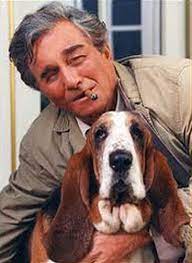 like Kojak who always had a tootsie pop in his mouth. Or Columbo with his habit of having just one more question. A writer should be a people watcher. The world is full of ideas everywhere you go: The whiny toddler at the grocery store who has a frazzled mom, the biker who goes out of his way to retrieve a ball and toss it back into the game. The way people treat their pets, their spouses, their cars. Their attitude toward their jobs and the cop who pulls them over for speeding. Everywhere there are people, there are ideas you can stow away to enhance the creation of your characters to make them real, memorable, loveable – or hateful, and different. like Kojak who always had a tootsie pop in his mouth. Or Columbo with his habit of having just one more question. A writer should be a people watcher. The world is full of ideas everywhere you go: The whiny toddler at the grocery store who has a frazzled mom, the biker who goes out of his way to retrieve a ball and toss it back into the game. The way people treat their pets, their spouses, their cars. Their attitude toward their jobs and the cop who pulls them over for speeding. Everywhere there are people, there are ideas you can stow away to enhance the creation of your characters to make them real, memorable, loveable – or hateful, and different.
XX
Now you can hop on over to see how these authors approach the creation of characters.
XX
Connie Vines
Fiona McGier
Dr. Bob Rich
Anne Stenhouse
Robin Courtright
Saturday, July 30 2022
July’s Round Robin asks us about the inspiration behind our characters. Have we ever killed any characters, cut some of them out of our stories and how do we go about naming them. And what about troubling scenes?
XX
 Well, considering I’ve already published one mystery and have another in the works, I have to say yes to killing some of my characters. Kind of a requisite for a murder mystery. But there’s also the old saw in mysteries, “If your middle is sagging, kill someone.” And, yes, I’ve used that strategy, too. But so far, I’ve never killed one of my good guys. And, of course, I’d never kill the dog. That’s a quick way to kill what might have been a blockbuster story. Well, considering I’ve already published one mystery and have another in the works, I have to say yes to killing some of my characters. Kind of a requisite for a murder mystery. But there’s also the old saw in mysteries, “If your middle is sagging, kill someone.” And, yes, I’ve used that strategy, too. But so far, I’ve never killed one of my good guys. And, of course, I’d never kill the dog. That’s a quick way to kill what might have been a blockbuster story.
XX
 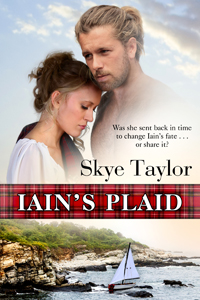 As for inspiration, my characters are a very mixed bag. One was inspired my one of my own adventures so I guess I’d have to confess there was some of me in her. Intrigued by the history of the Maine Islands that preceded the arrival of the Pilgrims in Plymouth Mass, I sailed out to one I could see from my home on the shore. It was no longer occupied but I wanted to explore the ruins. And my writer’s brain kicked in on the way home to ask the question, “What if I’d fallen into that old cellar hole and woken up in a different century?” So that was the inspiration for the story and the heroine. As for inspiration, my characters are a very mixed bag. One was inspired my one of my own adventures so I guess I’d have to confess there was some of me in her. Intrigued by the history of the Maine Islands that preceded the arrival of the Pilgrims in Plymouth Mass, I sailed out to one I could see from my home on the shore. It was no longer occupied but I wanted to explore the ruins. And my writer’s brain kicked in on the way home to ask the question, “What if I’d fallen into that old cellar hole and woken up in a different century?” So that was the inspiration for the story and the heroine.
XX
 My mystery heroine was a mixture of two wonderful deputies I met and got to know with our local sheriff’s office. My character was very much a fiction, but she was inspired by these two wonderful women in law enforcement. Many of my heroes are creations inspired by what I personally find attractive in a man, but one of the most intriguing heroes I wrote, walked onto the stage about 2/3 of the way through one of my series books, sat down and introduced himself, almost out of nowhere. I had realized I needed to have such a character appear, but having him just show up, so vivid and real, was a delightful surprise. He was a secondary character in that book, but reappeared in the book I just finished that will be out later this year and at the moment, I am writing his own book where he is the main character. I have no idea what inspired him. He has a troubled past, and perhaps his having overcome that is what is intriguing about him. My mystery heroine was a mixture of two wonderful deputies I met and got to know with our local sheriff’s office. My character was very much a fiction, but she was inspired by these two wonderful women in law enforcement. Many of my heroes are creations inspired by what I personally find attractive in a man, but one of the most intriguing heroes I wrote, walked onto the stage about 2/3 of the way through one of my series books, sat down and introduced himself, almost out of nowhere. I had realized I needed to have such a character appear, but having him just show up, so vivid and real, was a delightful surprise. He was a secondary character in that book, but reappeared in the book I just finished that will be out later this year and at the moment, I am writing his own book where he is the main character. I have no idea what inspired him. He has a troubled past, and perhaps his having overcome that is what is intriguing about him.
XX
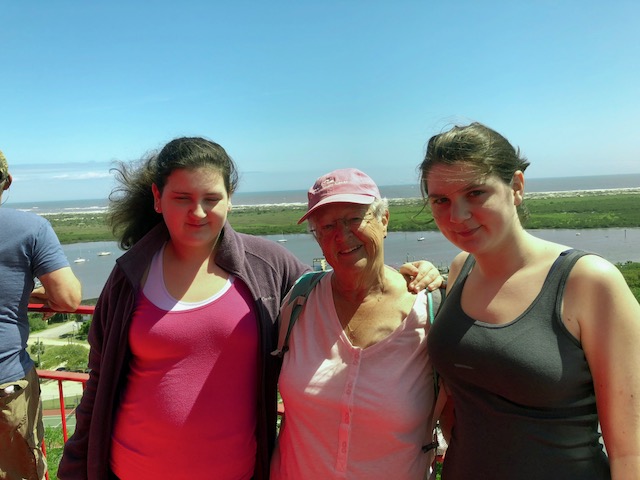 Some of my characters have been named after friends who are delighted to find themselves in my books. While the characters themselves are not mirrors of my friends, they possess some of the traits that make these friends special. My teen and child characters are inspired by memories of my own kids growing up and my current grandchildren. In fact, I have used a couple of my teen-age granddaughters as resources for likes, language, favorite bands, dress etc. Since it’s been an age since I was a teen and the world has changed dramatically, consulting with my grands has made my teen-age characters more authentic. Some of my characters have been named after friends who are delighted to find themselves in my books. While the characters themselves are not mirrors of my friends, they possess some of the traits that make these friends special. My teen and child characters are inspired by memories of my own kids growing up and my current grandchildren. In fact, I have used a couple of my teen-age granddaughters as resources for likes, language, favorite bands, dress etc. Since it’s been an age since I was a teen and the world has changed dramatically, consulting with my grands has made my teen-age characters more authentic.
XX
 Getting just the right name for my characters is one of my sticking points. First off, I follow the general smart idea of not having too many names for a reader to remember and definitely not a bunch that all start with the same letter. My stories include men and women from all races, faiths, nationalities and ethnicities so I look for names that fit. I’ve also checked the Social Security site for the most popular names in a given year. Gone With the Wind features a male character named Ashley, but that wouldn’t fly in a contemporary story, so checking to see what people were naming babies in any given era is another way to pick names. Getting just the right name for my characters is one of my sticking points. First off, I follow the general smart idea of not having too many names for a reader to remember and definitely not a bunch that all start with the same letter. My stories include men and women from all races, faiths, nationalities and ethnicities so I look for names that fit. I’ve also checked the Social Security site for the most popular names in a given year. Gone With the Wind features a male character named Ashley, but that wouldn’t fly in a contemporary story, so checking to see what people were naming babies in any given era is another way to pick names.
XX
But then I’m into making sure my nicknames fit, both with the last name and with the character. I’ve been known to change the character’s name once I get writing and discover it just doesn’t seem to fit the character who is emerging in the story. I say the names  out loud both the full name and the nickname with the last, to make sure it’s both memorable and flows smoothly. Occasionally I give a character a name deliberately difficult for effect. In the book I just finished writing my hero, everyone calls Mac, is actually Malcolm Beauregard Riggs IV. His father is an arrogant, egotistical attorney who likes being called Malcolm Beauregard Riggs III and because there is no love lost between them, Mac has always been Mac. In my mystery, everyone calls my female detective Jesse, because she has done her best to divorce herself from the debutant world her mother brought her up in along with her former life as dutiful, subservient wife. Only her Ex and her mother call her Jessalyn, which never fails to irritate my heroine. out loud both the full name and the nickname with the last, to make sure it’s both memorable and flows smoothly. Occasionally I give a character a name deliberately difficult for effect. In the book I just finished writing my hero, everyone calls Mac, is actually Malcolm Beauregard Riggs IV. His father is an arrogant, egotistical attorney who likes being called Malcolm Beauregard Riggs III and because there is no love lost between them, Mac has always been Mac. In my mystery, everyone calls my female detective Jesse, because she has done her best to divorce herself from the debutant world her mother brought her up in along with her former life as dutiful, subservient wife. Only her Ex and her mother call her Jessalyn, which never fails to irritate my heroine.
XX
 And then there are the pet names. Given that my series is contemporary romance, there are always pet names used and I don’t like to be repetitive so thought goes into what lovers call each other, too. Even the pets who appear in my stories get thoughtfully chosen names depending on how I want the pet to impact the story. Seamus is a fat, self-satisfied cat who reigns supreme in his world, and Murphy is an inquisitive half-grown golden retriever who has a knack for finding trouble. And then there are the pet names. Given that my series is contemporary romance, there are always pet names used and I don’t like to be repetitive so thought goes into what lovers call each other, too. Even the pets who appear in my stories get thoughtfully chosen names depending on how I want the pet to impact the story. Seamus is a fat, self-satisfied cat who reigns supreme in his world, and Murphy is an inquisitive half-grown golden retriever who has a knack for finding trouble.
XX
 We were asked to blog about one of a list of writerly things and I’ve covered most of them. I’ll let some of my other Blog Hoppers discuss cutting scenes and characters. (I do it, but usually during edits when I realized a scene has no impact on the overall story. Same as I’ve eliminated characters that also end up having no real role. Best to dump the stuff that slows the action and brings nothing to the table.) We were asked to blog about one of a list of writerly things and I’ve covered most of them. I’ll let some of my other Blog Hoppers discuss cutting scenes and characters. (I do it, but usually during edits when I realized a scene has no impact on the overall story. Same as I’ve eliminated characters that also end up having no real role. Best to dump the stuff that slows the action and brings nothing to the table.)
XX
Marci Baun
Helena Fairfax
Dr. Bob Rich
Anne Stenhouse
Judith Copek
Rhobin L Courtright
Saturday, June 25 2022
This month we are asked this question for our Round Robin Blog Hop
xx
 Have you ever included current social, political, or environmental problems in any of your stories or thought about doing so? Why or why not? Such as: Have you ever included current social, political, or environmental problems in any of your stories or thought about doing so? Why or why not? Such as:
- Do you ever include politics in your stories (why and how?)
- Do you ever address topics like discrimination or race relations?
- Are your characters with or against law enforcement and do you include the current climate of anti-law enforcement in your writing
- Have you incorporated gay/lesbian characters?
- How does the current economic climate feature in your books?
- Have you ever included current wars in your books?
- Has terrorism ever appeared in any of your stories?
- Do any of your characters address going green/global warming?
xxx
Wow! As one of our Round Robin bloggers commented, that’s a whole book itself, not just a blog post. But….. The answer for me is yes to some of them, no to controversial anything.
xx
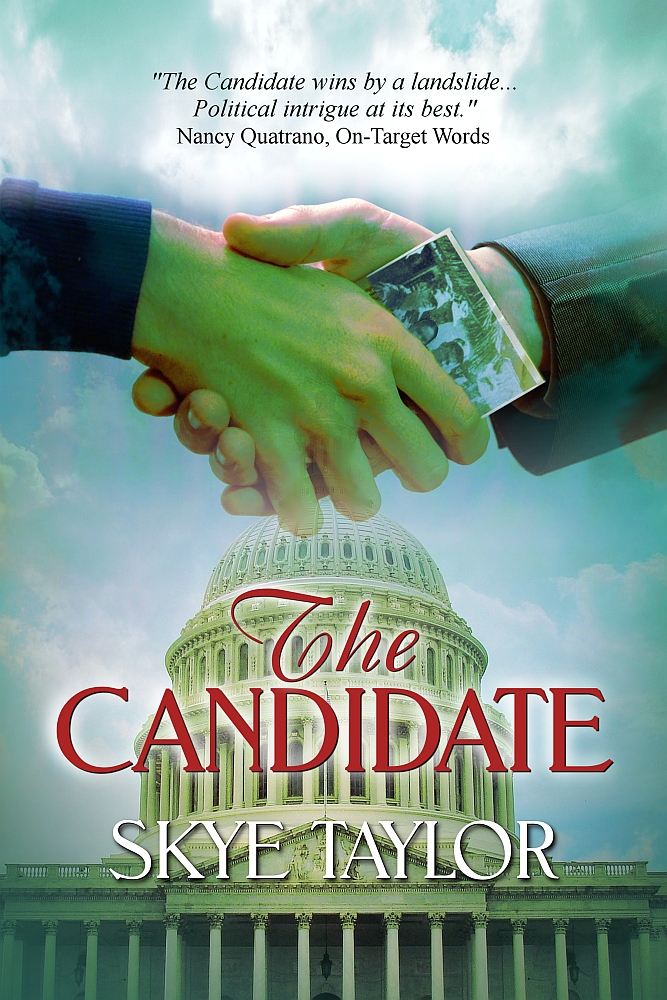 In The Candidate, which I tell people is NOT about politics, political issues are brought up and debated (as in my characters debate the issues) because it is the story of one man, running for president in a close three-way race who is faced with a personal crisis in the midst of that campaign. But the other two candidates also have a deep dark secret that, should it become known, would determine the caliber of the man, possibly change the outcome of the election and change the fate of the nation. And all three of those issues are on this list above. (Not telling you which because I’d love for you to read the book and I don’t want to spoil the secrets.) But it’s still one man’s story and I have chosen not to make the issues the focus of the book. In The Candidate, which I tell people is NOT about politics, political issues are brought up and debated (as in my characters debate the issues) because it is the story of one man, running for president in a close three-way race who is faced with a personal crisis in the midst of that campaign. But the other two candidates also have a deep dark secret that, should it become known, would determine the caliber of the man, possibly change the outcome of the election and change the fate of the nation. And all three of those issues are on this list above. (Not telling you which because I’d love for you to read the book and I don’t want to spoil the secrets.) But it’s still one man’s story and I have chosen not to make the issues the focus of the book.
xx
Several of my stories involve men or women who have been to war and while the story is about their personal challenges, the effects of those wars and how our country perceived them is critical. When I pitched  Worry Stone to an editor she loved the story but wanted me to change the war. Unfortunately, that editor was too young to know how awfully our country treated her warriors when they came home from Vietnam. She wanted me to change the war, but that would have changed the whole book. That hero came home, so thankful to be back in America, eager to put the war behind him and get on with his life, but the student body at the college he chose to attend had other ideas about how he should be treated. He also struggled with the guilt and despair that many soldiers experience in any war. But that war and the hateful things Americans who were opposed to it did to the returning soldiers was critical to that story. Worry Stone to an editor she loved the story but wanted me to change the war. Unfortunately, that editor was too young to know how awfully our country treated her warriors when they came home from Vietnam. She wanted me to change the war, but that would have changed the whole book. That hero came home, so thankful to be back in America, eager to put the war behind him and get on with his life, but the student body at the college he chose to attend had other ideas about how he should be treated. He also struggled with the guilt and despair that many soldiers experience in any war. But that war and the hateful things Americans who were opposed to it did to the returning soldiers was critical to that story.
xx
 For me personally, race, religion, culture have never been an issue. I love people for who they are and their color or faith or where they came from has never made a difference. As an author, I have included all kinds of people and I hope treated them all fairly, without discrimination. However, I have not dealt with the social issues that come with race, religion or ethnicity. For me personally, race, religion, culture have never been an issue. I love people for who they are and their color or faith or where they came from has never made a difference. As an author, I have included all kinds of people and I hope treated them all fairly, without discrimination. However, I have not dealt with the social issues that come with race, religion or ethnicity.
xx
 Two of my Tide’s Way books feature a police officer as a main character and the heroine of my mystery is a Deputy Detective here in St Augustine Florida, so my portrayal of law enforcement officers has been entirely positive. Mostly because I personally am a strong supporter of law enforcement. Never mind the time I was pulled over by a baby-cheeked officer in New Hampshire for turning into a private establishment in order to turn around, which he termed as doing so to avoid a traffic directive – NO U TURNs. Or the time a cop pulled me over for supposedly turning right on red without stopping after I’d actually turned left after waiting for all the oncoming traffic to pass. He asked me where I was coming from, realized his error and apologized – must have been a different white car. Everyone makes mistakes so I’m okay with that. I’m just thankful there are men and women willing to put themselves between me and danger, and since I consider them heroes and heroines, I enjoy having them be my main characters some of the time. Two of my Tide’s Way books feature a police officer as a main character and the heroine of my mystery is a Deputy Detective here in St Augustine Florida, so my portrayal of law enforcement officers has been entirely positive. Mostly because I personally am a strong supporter of law enforcement. Never mind the time I was pulled over by a baby-cheeked officer in New Hampshire for turning into a private establishment in order to turn around, which he termed as doing so to avoid a traffic directive – NO U TURNs. Or the time a cop pulled me over for supposedly turning right on red without stopping after I’d actually turned left after waiting for all the oncoming traffic to pass. He asked me where I was coming from, realized his error and apologized – must have been a different white car. Everyone makes mistakes so I’m okay with that. I’m just thankful there are men and women willing to put themselves between me and danger, and since I consider them heroes and heroines, I enjoy having them be my main characters some of the time.
XX
 I am sick and tired of having the WOKE generation shoving stuff down my throat that either I don’t and never will believe is right, or that I think they haven’t completely thought through so I will never write of those issues, even though I will include characters that fit into those issues. Like anyone else, I have strong political and social views, but I don’t need to alienate half my readers by using my writing platform to push issues that they find offensive. Not naming names, but I once read ALL of a very prolific writer’s books and couldn’t wait for the next. She included characters who were part of a social world I don’t support, but they were well written characters I could like and enjoy having around. And they are a part of the world we live in. As a long-time friend (and Episcopal Priest) once said, “You can object to the sin, but still love the sinner.” I try to live my life that way and I write with that in mind. But this particular author decided to use her best-selling platform to start pushing a political/social agenda I simply could not accept. So I stopped reading her books. I don't want that kind of writing to be my legacy. As a writer of fiction, I have a choice. Do I just tell a great story that anyone can enjoy? Or do I choose to make a political statement that will piss some people off? I chose the former. I am sick and tired of having the WOKE generation shoving stuff down my throat that either I don’t and never will believe is right, or that I think they haven’t completely thought through so I will never write of those issues, even though I will include characters that fit into those issues. Like anyone else, I have strong political and social views, but I don’t need to alienate half my readers by using my writing platform to push issues that they find offensive. Not naming names, but I once read ALL of a very prolific writer’s books and couldn’t wait for the next. She included characters who were part of a social world I don’t support, but they were well written characters I could like and enjoy having around. And they are a part of the world we live in. As a long-time friend (and Episcopal Priest) once said, “You can object to the sin, but still love the sinner.” I try to live my life that way and I write with that in mind. But this particular author decided to use her best-selling platform to start pushing a political/social agenda I simply could not accept. So I stopped reading her books. I don't want that kind of writing to be my legacy. As a writer of fiction, I have a choice. Do I just tell a great story that anyone can enjoy? Or do I choose to make a political statement that will piss some people off? I chose the former.
xx
But perhaps some of my blog hoppers have a different take on the issue so hop on over and check them out.

A.J. Maguire
Diane Bator
Connie Vines
Marci Baun
Anne Stenhouse
Dr. Bob Rich
Rhobin Courtright
Judith Copek
Saturday, May 28 2022
 Today's question for the Round Robin Blog Hop: What are your favorite things to do when you need to get away from stalled writing? Does it help you to resume with new ideas on the book you are writing? Today's question for the Round Robin Blog Hop: What are your favorite things to do when you need to get away from stalled writing? Does it help you to resume with new ideas on the book you are writing?
XX
Once upon a time, my standard for getting past the stalled-out hump was to put on my jacket and go for a walk along the shore. I lived in Maine back then so it often involved a coat, hat, scarf and mittens. Maybe it was the fresh air that revived my numb thinking neurons, but really, I think it was a little of several things including taking my eyes off the screen and the temptation to stray over to check my email or social media. It was also the physical exercise.  Getting my heart rate up and my blood pumping in the rest of my body surely had an effect on my brain as well. Getting my heart rate up and my blood pumping in the rest of my body surely had an effect on my brain as well.
XX
While I walked, I’d mull over where in the story I’d gotten bogged down. Maybe mentally review where my protagonist or other characters had been just before then, and what their immediate goals were. And somewhere along the line, whole conversations and scenes would start unfurling in my head. By the time I returned home, I couldn’t wait for the kettle to boil and a fresh mug of tea to be ready so I could sit down and capture all the stuff I’d just lived in my head while walking. Actually, sometimes, I skipped the tea and just started typing. The kettle would still be there after I’d captured the essence of my thoughts. It was like day dreaming in my characters’ world.
XX
This m ethod would probably still work today but now I have an enthusiastic young Golden Retriever who is eager to go with me every time I leave the house. Concentrating on my imaginary friends is difficult when I own the Welcome Wagon for my neighborhood who insists on saying hello to everyone we pass. I do still get ideas while I walk, but they never get a chance to flower into full-blown scenes and lines of dialog like they did when it was just me. So, my several times a day walks are now devoted to disconnecting from my imaginary world and participating in Jessi’s eager exploration of our very real one. ethod would probably still work today but now I have an enthusiastic young Golden Retriever who is eager to go with me every time I leave the house. Concentrating on my imaginary friends is difficult when I own the Welcome Wagon for my neighborhood who insists on saying hello to everyone we pass. I do still get ideas while I walk, but they never get a chance to flower into full-blown scenes and lines of dialog like they did when it was just me. So, my several times a day walks are now devoted to disconnecting from my imaginary world and participating in Jessi’s eager exploration of our very real one.
XX
 Water, however, seems to inspire me with ideas, even when it’s not sloshing against the shore while I walk. Taking a shower spawns thoughts that lead to breaks in my stories. It has occurred to me that perhaps I should install a white-board in the shower where I could take notes, but since I haven’t followed up on that idea, I just hurry back to my desk after I get out, sometimes, admittedly, with the towel wrapped about my middle and my hair still dripping wet. One of these days someone is going to ring my doorbell while I’m sitting at my desk pounding away wearing nothing more than a towel, but I’ll cross that bridge when I get to it. Water, however, seems to inspire me with ideas, even when it’s not sloshing against the shore while I walk. Taking a shower spawns thoughts that lead to breaks in my stories. It has occurred to me that perhaps I should install a white-board in the shower where I could take notes, but since I haven’t followed up on that idea, I just hurry back to my desk after I get out, sometimes, admittedly, with the towel wrapped about my middle and my hair still dripping wet. One of these days someone is going to ring my doorbell while I’m sitting at my desk pounding away wearing nothing more than a towel, but I’ll cross that bridge when I get to it.
XX
 Another way I’ve found to get past a stalled story line is to fix that mug of tea, back up a chapter or three and just read what I’ve already written. Usually, by the time I get to where I left off, I have plenty of ideas elbowing their way past each other to get typed up and included in the story. Often this is a jumble, but that’s what editing is for. Just get the ideas out there. As another writer friend of mine always says, you can’t edit a blank page. Another way I’ve found to get past a stalled story line is to fix that mug of tea, back up a chapter or three and just read what I’ve already written. Usually, by the time I get to where I left off, I have plenty of ideas elbowing their way past each other to get typed up and included in the story. Often this is a jumble, but that’s what editing is for. Just get the ideas out there. As another writer friend of mine always says, you can’t edit a blank page.
XX
 If I am really REALLY stuck, the best answer is to put the work in progress aside for a bit. Maybe a few days, or a week. Or maybe while I work on something entirely different. Another book, a blog post, a short story, a letter to a friend or install that new toilet flusher that’s been waiting forever to get done. Or go shopping, even if it’s just groceries or a couple replacement plants for my yard. The point is, to change the subject. Then, when I’ve finished that project, open up this stalled file and read it with fresh eyes. You’d be amazed what germinated while I was busy elsewhere. If I am really REALLY stuck, the best answer is to put the work in progress aside for a bit. Maybe a few days, or a week. Or maybe while I work on something entirely different. Another book, a blog post, a short story, a letter to a friend or install that new toilet flusher that’s been waiting forever to get done. Or go shopping, even if it’s just groceries or a couple replacement plants for my yard. The point is, to change the subject. Then, when I’ve finished that project, open up this stalled file and read it with fresh eyes. You’d be amazed what germinated while I was busy elsewhere.
XX
 I also have one other sure-fire method of dealing with stalled writing. I am part of a small group of writers. We call ourselves the Sandy Scribblers and we meet once a month. We used to meet in a library followed by lunch afterward. Since the advent of the Covid era, we meet by Zoom, but except for the lost lunch date, it works well. We don’t have to get dressed even, or drive anywhere. Just settle back in my recliner with my iPad in my lap and off we go. We discuss our current projects and bounce ideas I also have one other sure-fire method of dealing with stalled writing. I am part of a small group of writers. We call ourselves the Sandy Scribblers and we meet once a month. We used to meet in a library followed by lunch afterward. Since the advent of the Covid era, we meet by Zoom, but except for the lost lunch date, it works well. We don’t have to get dressed even, or drive anywhere. Just settle back in my recliner with my iPad in my lap and off we go. We discuss our current projects and bounce ideas  around. If I’m having a specific problem, I can send out a summary of my issue, maybe some ideas I’ve had or specific questions ahead of our meeting date so my Sandy Scribbler pals have time to read and think about my current issue ahead of the meeting. One of the ladies I call my personal Mayhem. She thinks of all the very WORST things that could befall my characters who I’ve been trying to shelter from trouble. I pick and choose carefully from her list of suggestions but even if I don’t use any directly, her suggestions provoke lively discussion among the four of us. We end up helping each other solve our problems or whip our reluctant characters into shape. around. If I’m having a specific problem, I can send out a summary of my issue, maybe some ideas I’ve had or specific questions ahead of our meeting date so my Sandy Scribbler pals have time to read and think about my current issue ahead of the meeting. One of the ladies I call my personal Mayhem. She thinks of all the very WORST things that could befall my characters who I’ve been trying to shelter from trouble. I pick and choose carefully from her list of suggestions but even if I don’t use any directly, her suggestions provoke lively discussion among the four of us. We end up helping each other solve our problems or whip our reluctant characters into shape.
XX
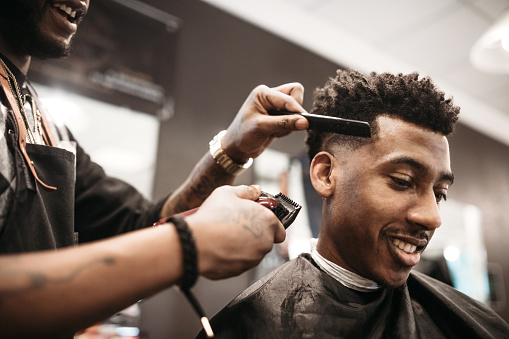
Even if you are not part of a regular writer’s critique style group, just talking over your plot problems with your hairdresser/barber or your next-door neighbor over coffee can trigger ideas in your own brain that only happen as you struggle to explain what the problem is out loud for someone else to understand.
XX
There is also the option of a critique partner(s.) Not just to critique work you’ve already written, but to see holes in  your plot that are going to cause trouble down the road. Or help you dig yourself out of the slump you find yourself in now. your plot that are going to cause trouble down the road. Or help you dig yourself out of the slump you find yourself in now.
XX
This might seem obvious, but a couple other things to consider are: TURN OFF SOCIAL MEDIA, CLOSE YOUR EMAIL APPS and BANISH THE GAMES.
XX
So now that my little lecture is done, check out what these other authors do to get away from a stalled writing funk.
XX
Dr. Bob Rich
Connie Vines
Anne Stenhouse
Diane Bator
A.J. Maguire
Rhobin Courtright
Saturday, April 23 2022
 Round Robin Blog Hop for April 2022: How much reading do you do, both for pleasure and for a work in progress? Round Robin Blog Hop for April 2022: How much reading do you do, both for pleasure and for a work in progress?
XX
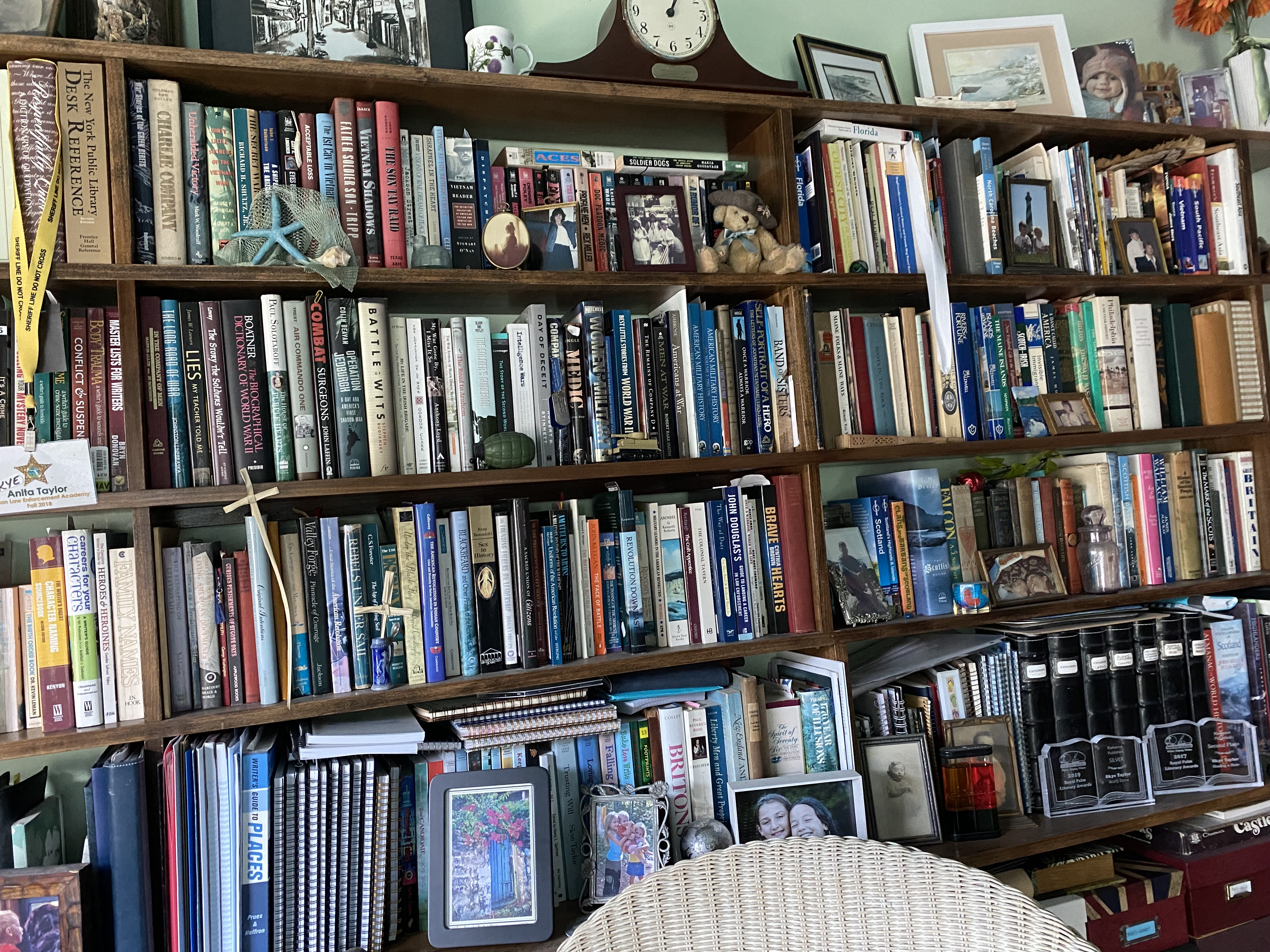 If you were to poke about my wee house, you wouldn’t be asking how MUCH I read, but rather when do I find the time? Even in the bathroom there is a small wood rack my dad built for me to keep reading material handy just in case I might be there long enough. On my bedside table there are several books just in case I finish whatever I was reading and don’t want to get up and look for something else. The end table next to my recliner has a If you were to poke about my wee house, you wouldn’t be asking how MUCH I read, but rather when do I find the time? Even in the bathroom there is a small wood rack my dad built for me to keep reading material handy just in case I might be there long enough. On my bedside table there are several books just in case I finish whatever I was reading and don’t want to get up and look for something else. The end table next to my recliner has a  stack of what I consider my “Read Now” stuff but there are also a couple items on the ottoman and an overflowing magazine rack. And we haven’t even gotten to my library/study. Or the astonishingly long file of yet unread books on my Kindle apps or the almost as long list of audio books on my phone. So, I guess the short answer to the first part of that question is A LOT! stack of what I consider my “Read Now” stuff but there are also a couple items on the ottoman and an overflowing magazine rack. And we haven’t even gotten to my library/study. Or the astonishingly long file of yet unread books on my Kindle apps or the almost as long list of audio books on my phone. So, I guess the short answer to the first part of that question is A LOT!
XX
Most of the places I’ve mentioned are all books for pleasure. But I do a fair amount of reading both for research on a book I’m planning to write and on the craft of writing. All those books are generally in print, many on my bookshelf beside my desk and some from the library.  I’ve also been known to subscribe to a periodical just because it is related to something I am writing and just might give me unexpected information I wasn’t aware I needed. I’ve also been known to subscribe to a periodical just because it is related to something I am writing and just might give me unexpected information I wasn’t aware I needed.
XX
When I was writing Healing A Hero I had a subscription to Marine Times, because my hero was an active duty Marine and I needed to know what was going on in the world of Marines at the time. I am a pantser, as I’ve mentioned before, so while I knew how the story ended, there were details I would learn along the way. It was a second chance at love story, and as I wrote, I realized I needed a logical reason why my hero and heroine lost touch fourteen years earlier. In a world of email and cell phones it was hard to come up with a reason that didn’t stretch the imagination so the problem niggled at my mind as I wrote. Then the next issue of the Marine Times arrived and the front page story was of a Navy ship being decommissioned after years of service. Two men, a sailor and a Marine who served aboard her were interviewed and there was my answer! How amazing that this ship had just made port in Brisbane Australia and the Marines given shore leave when the towers in New York were hit on 9/11. The Marine interviewed told of having just ordered up a steak at a bar on main street when MPs from the ship came running through the town ordering all personnel back on board so the ship could leave port immediately. Adding to his story, he revealed that none of the  sailors or Marines on board were allowed to call or email their loved ones because no one was to know where that ship was headed. I had my answer! sailors or Marines on board were allowed to call or email their loved ones because no one was to know where that ship was headed. I had my answer!
XX
Sometimes my research is historical in nature. I grew up near Boston and spent many hours poking about the historic sites, but even so, when I was writing Iain’s Plaid, I needed to find details that aren’t the stuff of legend. So, I spent more time IN the  city exploring, but also reading a variety of sources including journals and letters from the day, written by men and women on both sides of the coming conflict (1775.) When writing The Candidate, I delved into research on our involvement in Vietnam to learn just what it might have been like for my protagonist, Matt Steele, both to be there, to city exploring, but also reading a variety of sources including journals and letters from the day, written by men and women on both sides of the coming conflict (1775.) When writing The Candidate, I delved into research on our involvement in Vietnam to learn just what it might have been like for my protagonist, Matt Steele, both to be there, to  witness the fall of the embassy and his re-entry into our less than welcoming country at the time. To get the feel of a historical setting, it’s not enough to just know the history, but a writer needs to have a grasp of the minute details of daily life; like what they ate, and how they dressed and even the way they spoke. It takes patient reading to learn all this stuff. witness the fall of the embassy and his re-entry into our less than welcoming country at the time. To get the feel of a historical setting, it’s not enough to just know the history, but a writer needs to have a grasp of the minute details of daily life; like what they ate, and how they dressed and even the way they spoke. It takes patient reading to learn all this stuff.
XX
 When we all began to write, we were given the wise advice to “write what you know.” Which is a fine way to begin and depending on genre doesn’t take a lot of research. If you’re writing a romance and your heroine is a teacher and you spent the last 20 years teaching, you probably don’t have to research much. I’m not saying John Grisham didn’t do his research, but he was a lawyer for a decade and a state representative for another decade so he had tons of personal knowledge and insider info to base his best-selling courtroom dramas on. But for most of us, we eventually When we all began to write, we were given the wise advice to “write what you know.” Which is a fine way to begin and depending on genre doesn’t take a lot of research. If you’re writing a romance and your heroine is a teacher and you spent the last 20 years teaching, you probably don’t have to research much. I’m not saying John Grisham didn’t do his research, but he was a lawyer for a decade and a state representative for another decade so he had tons of personal knowledge and insider info to base his best-selling courtroom dramas on. But for most of us, we eventually  wear out the personal knowledge we have and start looking for other careers and lifestyles for our heroes and heroines. And so the research begins again. We can’t all be in law enforcement, or work in hospitals, fight wars, spy on foreign governments or wear chaps and ride the range, so we research which means more reading. A LOT more reading. Some authors end up so in love with all their research they turn a 300 page story into a 900 page novel, but for most of us, it means taking copious notes from dozens of sources and then cherry-picking the best of the details to make our stories come alive and feel real. wear out the personal knowledge we have and start looking for other careers and lifestyles for our heroes and heroines. And so the research begins again. We can’t all be in law enforcement, or work in hospitals, fight wars, spy on foreign governments or wear chaps and ride the range, so we research which means more reading. A LOT more reading. Some authors end up so in love with all their research they turn a 300 page story into a 900 page novel, but for most of us, it means taking copious notes from dozens of sources and then cherry-picking the best of the details to make our stories come alive and feel real.
XX
 So, for me, the answer is lots and lots of reading. In addition to reading for pleasure and reading for research, I also beta read for others and I’ve judged for contests. I critique other authors as well and all that takes a big chunk of time spent reading. And then there’s the news. I don’t trust the media very much, especially not what is presented on the television which, seems today to be chosen more for the shock and awe factor or to sway people to one point of view or another. So, I read a variety of sources to find out what is really going on in my world. I read sources that give me all the facts and let me decide how I feel about it rather than simply taking what I’m told as gospel. I also like to read opposing opinion essays to compare with what I’ve already learned. So, for me, the answer is lots and lots of reading. In addition to reading for pleasure and reading for research, I also beta read for others and I’ve judged for contests. I critique other authors as well and all that takes a big chunk of time spent reading. And then there’s the news. I don’t trust the media very much, especially not what is presented on the television which, seems today to be chosen more for the shock and awe factor or to sway people to one point of view or another. So, I read a variety of sources to find out what is really going on in my world. I read sources that give me all the facts and let me decide how I feel about it rather than simply taking what I’m told as gospel. I also like to read opposing opinion essays to compare with what I’ve already learned.
XX
Good thing I like to read … huh?
XX
 Hop on over and find out what these authors think about reading….for pleasure or research. Hop on over and find out what these authors think about reading….for pleasure or research.
XX
Marci Baun
Connie Vines
Helena Fairfax
Diane Bator
Dr. Bob Rich
Rhobin L Courtright
Saturday, March 19 2022
Our Round Robin Blog Hop for March 2022 asks: What messages do your books give your readers?
xx

My books don’t start out with a message – at least not consciously, but by the time I’ve arrived at the end, there usually is a message to be taken away. In my Camerons of Tide’s Way contemporary romance series, each book is a love story and like all romances, they feature the “happy ever after” expected in a romance. In order to arrive at that HEA the hero and heroine need to overcome whatever the conflict that kept them apart at the start, so it kind of depends on the conflict, what the message is.
XX
 In some romances, that conflict might be overcoming a racial or social divide (the prince and the pauper, or a mixed race or religion.) In ages past those barriers were never crossed, but in today’s world they frequently are, so stories featuring these types of issues forces the hero and heroine to see beyond the confines of their own social set to the strengths and good points of someone else who grew up different. The general lesson learned would be to approach life and new people without bias or prejudice. In some romances, that conflict might be overcoming a racial or social divide (the prince and the pauper, or a mixed race or religion.) In ages past those barriers were never crossed, but in today’s world they frequently are, so stories featuring these types of issues forces the hero and heroine to see beyond the confines of their own social set to the strengths and good points of someone else who grew up different. The general lesson learned would be to approach life and new people without bias or prejudice.
XX
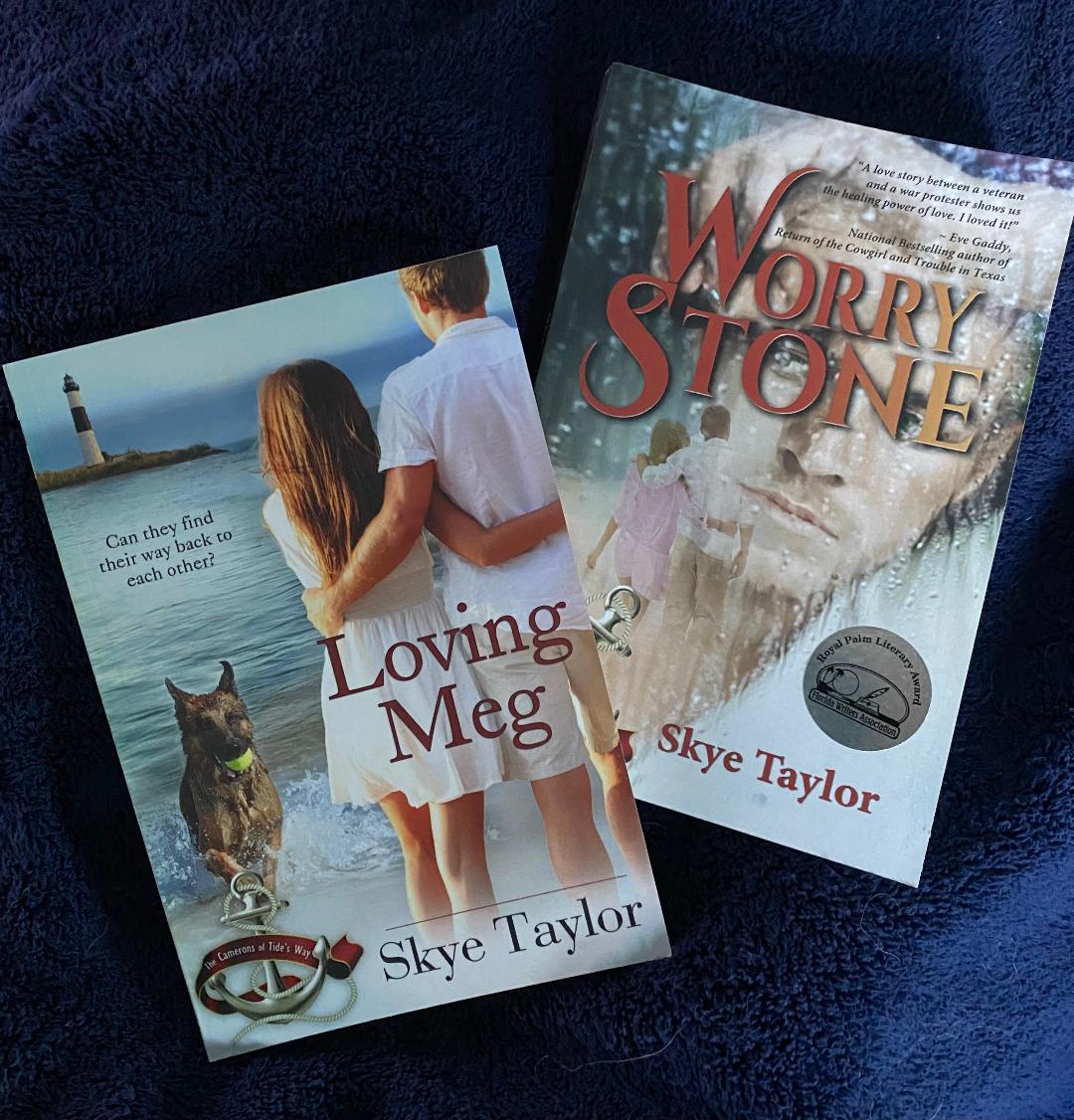 In my Tide’s Way books, the heroes and heroines don’t face societal divides and each story had a different lesson. In Trusting Will, Brianna had to find trust and learn to love again in spite of having given her heart to a soldier who had been killed in action. In Loving Meg and Worry Stone, the main characters returned from a war and had to find their way back to life as a civilian. Both struggled with the nightmares and guilt and eventually learned the lesson that healing begins when you finally reach out for help. In Loving Meg, that reaching out was to a dog. Usually it’s a trained service dog that helps a soldier to heal, but in this story, the dog had his issues, a police K-9 who lost his partner in the line of duty. Meg and Kip ended up healing each other. In Worry Stone there were two lessons to be learned. Sandy learned that no matter how much she loved Cam, she couldn’t fix his problems and Cam finally came to that place where he knew he had to reach out to others who’d been where he was and understood his issues. And in reaching out, he found healing. Both stories were also a lesson for the reader who might never have considered the toll war takes on the human mind and heart, or what is means for soldiers to put their lives on the line for an ideal like freedom. In my Tide’s Way books, the heroes and heroines don’t face societal divides and each story had a different lesson. In Trusting Will, Brianna had to find trust and learn to love again in spite of having given her heart to a soldier who had been killed in action. In Loving Meg and Worry Stone, the main characters returned from a war and had to find their way back to life as a civilian. Both struggled with the nightmares and guilt and eventually learned the lesson that healing begins when you finally reach out for help. In Loving Meg, that reaching out was to a dog. Usually it’s a trained service dog that helps a soldier to heal, but in this story, the dog had his issues, a police K-9 who lost his partner in the line of duty. Meg and Kip ended up healing each other. In Worry Stone there were two lessons to be learned. Sandy learned that no matter how much she loved Cam, she couldn’t fix his problems and Cam finally came to that place where he knew he had to reach out to others who’d been where he was and understood his issues. And in reaching out, he found healing. Both stories were also a lesson for the reader who might never have considered the toll war takes on the human mind and heart, or what is means for soldiers to put their lives on the line for an ideal like freedom.
XX
 In Keeping His Promise, Kate Cameron Shaw has a “Not-in-my-backyard” attitude toward a good program aimed at helping unfortunate men who got a lousy start in life. The hero, a cop, is in favor of the program, but regardless of her feelings for him, she’s still staunchly against it. Until she meets a man who’s been there, done that, who shares just how close he was to taking his own life in despair with Kate. Kate opened her mind and listened and learned something even those she loved couldn’t teach her. The lesson here is to keep your mind open. Don’t judge others until you’ve learned both sides of the story. A willingness to see both sides of an issue is a lesson we all could take to heart in the current heated and often vitriolic world we live in. Find out all the facts before making up your mind. Don’t let social media or close-minded sources make your decisions for you. Be willing to do your own research and learn new things. Be willing to be flexible and to compromise. Good things happen when we all work together to make things better. In Keeping His Promise, Kate Cameron Shaw has a “Not-in-my-backyard” attitude toward a good program aimed at helping unfortunate men who got a lousy start in life. The hero, a cop, is in favor of the program, but regardless of her feelings for him, she’s still staunchly against it. Until she meets a man who’s been there, done that, who shares just how close he was to taking his own life in despair with Kate. Kate opened her mind and listened and learned something even those she loved couldn’t teach her. The lesson here is to keep your mind open. Don’t judge others until you’ve learned both sides of the story. A willingness to see both sides of an issue is a lesson we all could take to heart in the current heated and often vitriolic world we live in. Find out all the facts before making up your mind. Don’t let social media or close-minded sources make your decisions for you. Be willing to do your own research and learn new things. Be willing to be flexible and to compromise. Good things happen when we all work together to make things better. 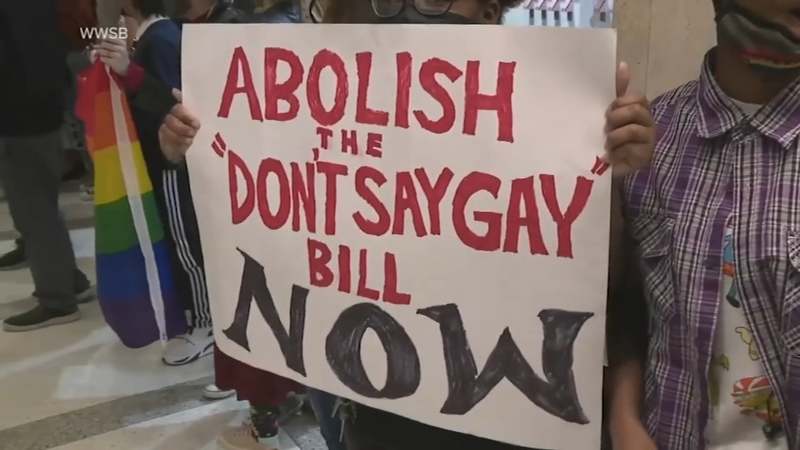 A very current example is the newly passed Florida law that the media has dubbed “Don’t Say Gay” and has convinced much of the public to believe that it is an anti-LGBT law. What the law DOES say is that gender identity cannot be taught before grade 4 and thereafter must be presented in age appropriate ways. It also forces the schools to allow parents access to records kept by the schools regarding their own children. My character, Kate, might have been swayed by that media slogan that has become a strident chant and never found out what the bill really included, just like she was dead set against having a second-chance house for men being released from jail in her town until she met a man who had been in that situation and turned his life around because someone gave him a second chance. A very current example is the newly passed Florida law that the media has dubbed “Don’t Say Gay” and has convinced much of the public to believe that it is an anti-LGBT law. What the law DOES say is that gender identity cannot be taught before grade 4 and thereafter must be presented in age appropriate ways. It also forces the schools to allow parents access to records kept by the schools regarding their own children. My character, Kate, might have been swayed by that media slogan that has become a strident chant and never found out what the bill really included, just like she was dead set against having a second-chance house for men being released from jail in her town until she met a man who had been in that situation and turned his life around because someone gave him a second chance.
XX
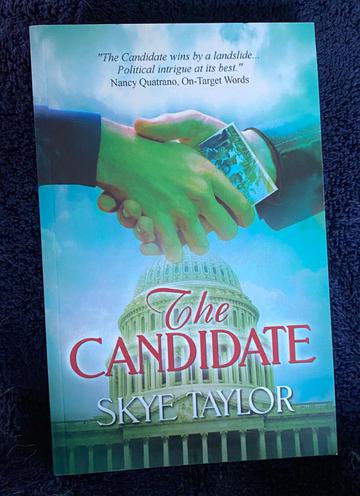 In my mainstream, The Candidate, Matt Steele is in a close race for the White House with two equally likely opponents. All three men have secrets, some from the past, that suddenly become a problem in the present. Each man is faced with the decision to keep the knowledge to himself, or to be up front with it and let the voting public decide if he is the man they trust to lead them. While I know it’s unrealistic, given todays’ politics, I wanted my hero to be the better man. I wanted him to struggle over that decision. So, I guess the take-away is that honesty, as we were taught as kids, is always the best policy. In my mainstream, The Candidate, Matt Steele is in a close race for the White House with two equally likely opponents. All three men have secrets, some from the past, that suddenly become a problem in the present. Each man is faced with the decision to keep the knowledge to himself, or to be up front with it and let the voting public decide if he is the man they trust to lead them. While I know it’s unrealistic, given todays’ politics, I wanted my hero to be the better man. I wanted him to struggle over that decision. So, I guess the take-away is that honesty, as we were taught as kids, is always the best policy.
xx
All my stories have some lesson in them, maybe not the main theme of the book, but a lesson none the less. Life itself is a constant challenge to grow and learn, and the stories we read can be the same. Life can crush you if you let it, or you can dig in, learn from your own mistakes and those of others, find courage, strength and the will to overcome. Life, love, sacrifice, peace and blessings are all priceless and worth striving toward. Those are lessons we can learn even when the teachers are fictional characters in a story.
XX
Here’s a take on the question by other writers in this Round Robin Blog Hop:
XX
Marci Baun
Connie Vines
Diane Bator
Dr. Bob Rich
Helena Fairfax
Robin Courtright
Saturday, February 19 2022
This month our Round Robin Blog Hop asks us to describe a flawed character we might use as a heroine or hero in a story. How did they become so flawed? How might their flaws affect the story and what will happen to them?
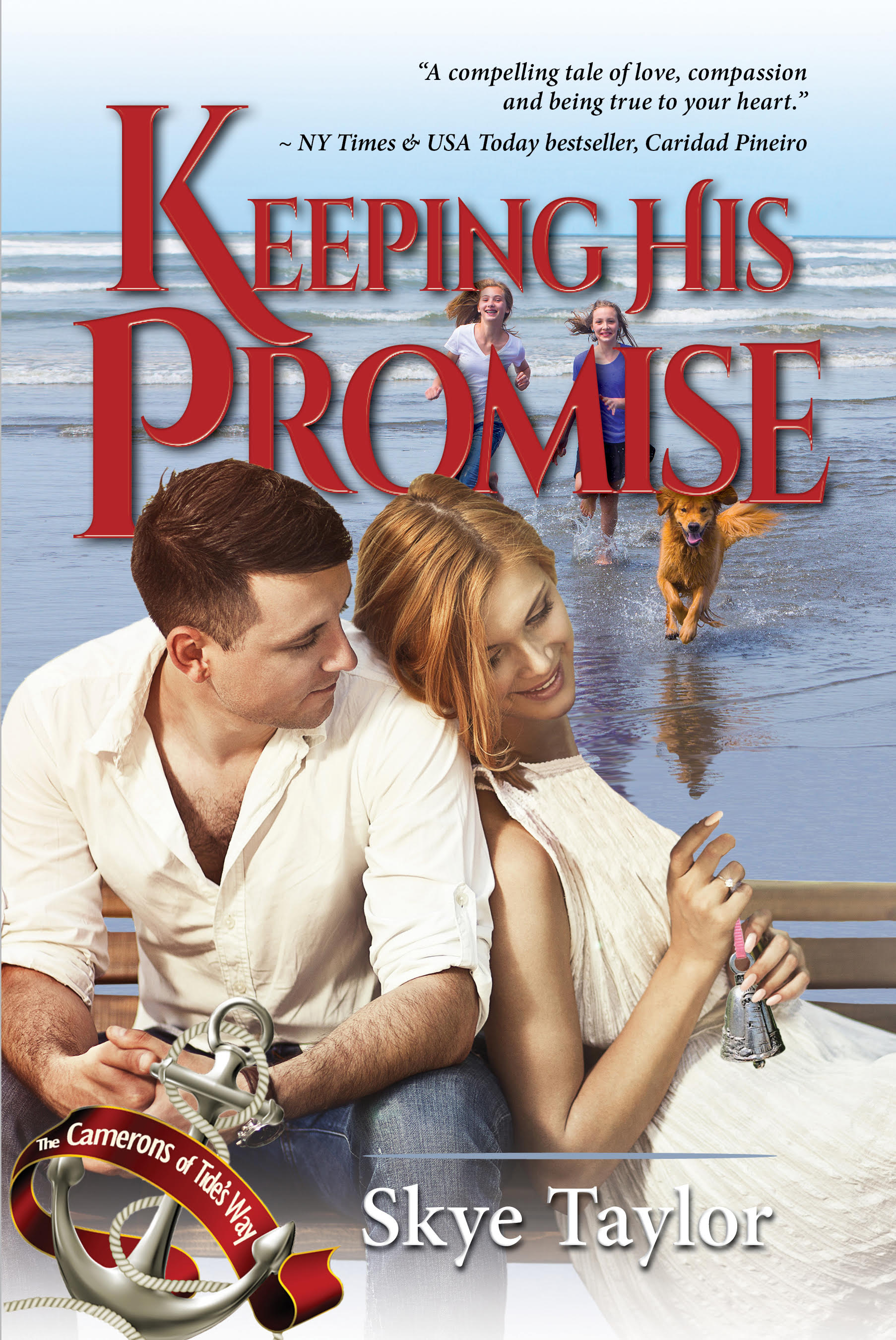 XX XX
A few years back, when I was writing book 5 in my Tide’s Way series I was about two thirds of the way through the book when a character I’d never planned on walked onto the scene, sat down, introduced himself and captured my interest. Not just because he filled a vital role I’d not anticipated when I began writing that book, but because he personally was interesting. As I’ve mentioned before, I’m a seat of your pants kind of writer. I usually don’t have a well-drawn plot, but I do have all my characters well defined with detailed backstories and clear goals, understandable motivation and frustrating conflicts. But this time I’d come to realize I’d missed someone. I just didn’t know who that someone was.
XX
 One of my secondary characters was running for Mayor of Tide’s Way and part of her platform included a plan for an old run-down plantation property left to the town in the will of the last family member. She wanted to turn it into a halfway house for young men who’d gotten on the wrong side of the law, done their time and wanted to put their lives back on track but had no resources to do so. My heroine was a reporter with a “not in my neighborhood” mentality about this project. My hero was a town cop who thought the idea was excellent and he’d thrown his support behind it. One of my secondary characters was running for Mayor of Tide’s Way and part of her platform included a plan for an old run-down plantation property left to the town in the will of the last family member. She wanted to turn it into a halfway house for young men who’d gotten on the wrong side of the law, done their time and wanted to put their lives back on track but had no resources to do so. My heroine was a reporter with a “not in my neighborhood” mentality about this project. My hero was a town cop who thought the idea was excellent and he’d thrown his support behind it.
XX
Since this was a romance, I knew I needed something to happen to change my heroine’s mind, so one afternoon, the mayoral candidate invited my heroine to her home to meet someone. That someone was the man she proposed to put in charge of this new halfway house project.
XX
And just like that, Lucas Trevlyn was born.
 XX XX
Barely thinking about it, I sat down and started writing Lucas’ back-story. Turns out, he’d been standing on the wrong side of the railing on a bridge over a highway trying to screw up the courage to jump and put an end to the life he felt he’d totally screwed up when an off-duty cop saw him and stopped to suggest there might be another answer to his problems. As if he had all afternoon and nowhere to go, the cop leaned back against the railing and invited Lucas to share his story.
XX
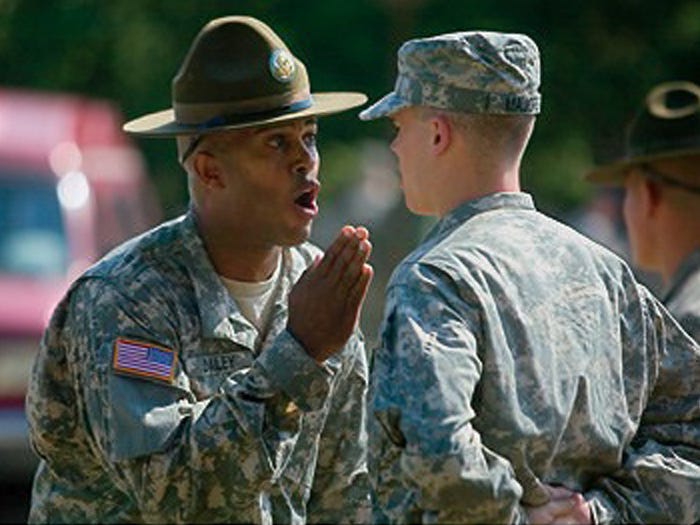 Lucas had been a good kid growing up, an average student, and a decent athlete, who, on graduating high school, put up his right hand and swore an oath to defend his country. He’d been a good soldier, too. Rising to the rank of Sergeant, put in charge of other men and excelling at it. He soldiered valiantly until his hitch was up, but by then he’d seen enough of war and just wanted to go back to being the carefree young man he’d been before he became a soldier. Lucas had been a good kid growing up, an average student, and a decent athlete, who, on graduating high school, put up his right hand and swore an oath to defend his country. He’d been a good soldier, too. Rising to the rank of Sergeant, put in charge of other men and excelling at it. He soldiered valiantly until his hitch was up, but by then he’d seen enough of war and just wanted to go back to being the carefree young man he’d been before he became a soldier.
XX
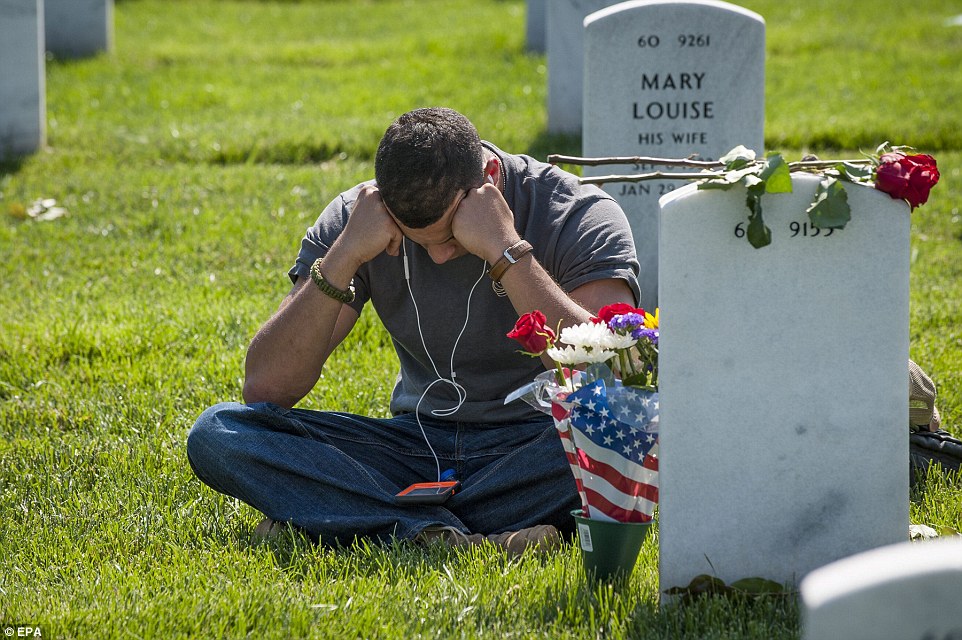 Except there was no going back. Lucas had seen too much, experienced nightmares he couldn’t live with, felt despair he couldn’t overcome, and he turned to alcohol. He got into brawls, and eventually got tossed into jail where he should have sobered up, but instead was introduced to drugs by fellow inmates and corrupt wardens. He ended up stealing to support his new habit when he got out and it wasn’t long before he was back behind bars. During that second stint, his parents were killed in a car accident and their home, mortgaged to pay for his lawyer’s fees was sold. He didn’t get to go to their funeral or say goodbye and when he got out the second time he’d hit bottom, which is how he ended up standing on that bridge ready to end it once and for all. Until Officer Montgomery showed up. Except there was no going back. Lucas had seen too much, experienced nightmares he couldn’t live with, felt despair he couldn’t overcome, and he turned to alcohol. He got into brawls, and eventually got tossed into jail where he should have sobered up, but instead was introduced to drugs by fellow inmates and corrupt wardens. He ended up stealing to support his new habit when he got out and it wasn’t long before he was back behind bars. During that second stint, his parents were killed in a car accident and their home, mortgaged to pay for his lawyer’s fees was sold. He didn’t get to go to their funeral or say goodbye and when he got out the second time he’d hit bottom, which is how he ended up standing on that bridge ready to end it once and for all. Until Officer Montgomery showed up.
XX
 With Sam Montgomery’s support and encouragement, Lucas stayed clean, went to college, got his degree and turned his life around. Now he devoted his energy to counseling teens on the verge of trouble. That, and the reputation he’d made for dealing with men, sometimes belligerent men, while he was in the Army and as a bouncer at a night club while he was in college was what recommended him to this woman running for mayor as the perfect candidate to manage her halfway house project. This was the young man who walked into her well-appointed parlor, dressed in neatly creased slacks and a jacket, with a fashionable haircut, impeccable manners and engaging smile. With Sam Montgomery’s support and encouragement, Lucas stayed clean, went to college, got his degree and turned his life around. Now he devoted his energy to counseling teens on the verge of trouble. That, and the reputation he’d made for dealing with men, sometimes belligerent men, while he was in the Army and as a bouncer at a night club while he was in college was what recommended him to this woman running for mayor as the perfect candidate to manage her halfway house project. This was the young man who walked into her well-appointed parlor, dressed in neatly creased slacks and a jacket, with a fashionable haircut, impeccable manners and engaging smile.
XX
I knew, even as I was finishing that book, my heroine completely won over by Lucas, that I wanted Lucas to be the hero of a future book in that series. I wanted him to have his happy-ever-after, to excel at this new opportunity and find his soul mate while I was at it. That story is currently in the brainstorming phase, and it’s next up when I finish the  two I’m working on currently. two I’m working on currently.
XX
Lucas is or was a very flawed character with a solid and very current back-story to support his downfall and a valiant struggle to overcome. He can still be tempted, but rather than fail as he once did, he’ll overcome and his past failings will provide him with understanding and wisdom as he helps these new young men to find their way back to successful, productive lives. I look forward to writing Lucas’ story and I hope my readers will find him as compelling as I do.
XX
 But in the meantime, perhaps you can hop on over to see what these other authors have done with flawed characters, what kind of men and women are they and how are going to fare. But in the meantime, perhaps you can hop on over to see what these other authors have done with flawed characters, what kind of men and women are they and how are going to fare.
XX
Dr. Bob Rich
Marci Baun
Connie Vines
Anne Stenhouse
Diane Bator
Rhobin L Courtright
Fiona McGier
Saturday, January 22 2022
For our January Blog Hop, the question is:
How are you dealing with the COVID pandemic in your contemporary novels/short stories? Not as a political statement or polarizing pro/con mask stance, but the way the COVD virus effects the day-to-day lives of your characters and appears within the story’s plot line?
XX
 Since I haven’t missed a Round Robin Blog Hop post to date and didn’t want to start now, I’m here, but it’ll be short. Because I haven’t included Covid-19 in my stories. Partly this is due to the fact I’d already begun work on book two in my mystery series and the plot didn’t lend itself to including this monkey wrench in life. Partly because I was also plotting book 7 in my romance series and I think it would add a tremendous challenge to create a love story with all the isolation, masks and standing 6 feet apart going on. Since I haven’t missed a Round Robin Blog Hop post to date and didn’t want to start now, I’m here, but it’ll be short. Because I haven’t included Covid-19 in my stories. Partly this is due to the fact I’d already begun work on book two in my mystery series and the plot didn’t lend itself to including this monkey wrench in life. Partly because I was also plotting book 7 in my romance series and I think it would add a tremendous challenge to create a love story with all the isolation, masks and standing 6 feet apart going on.
XX
 But there’s another reason I chose not to include this in my newest effort. One of my best stories ever, a book that eventually won the Silver award in the Royal Palm Literary Awards a few years ago, was set in the early 1970s and a good portion of the conflict involved a Marine returning from Vietnam. I pitched it to an editor some years earlier and she loved the story and the characters but thought the Vietnam era would be a non-starter and she wanted me to move it up to the current wars in the Middle East. (I picture the woman wearing beads, flowers in her hair, protesting the war back in the day.) Anyway, as I pointed out to her, today we don’t treat our returning soldiers as disgracefully as we did in the 70s. I couldn’t just change the war without changing much of the book or the hero’s conflicts. Another editor who liked the book, the premise and the characters, felt that focusing on that war would date the book. But there’s another reason I chose not to include this in my newest effort. One of my best stories ever, a book that eventually won the Silver award in the Royal Palm Literary Awards a few years ago, was set in the early 1970s and a good portion of the conflict involved a Marine returning from Vietnam. I pitched it to an editor some years earlier and she loved the story and the characters but thought the Vietnam era would be a non-starter and she wanted me to move it up to the current wars in the Middle East. (I picture the woman wearing beads, flowers in her hair, protesting the war back in the day.) Anyway, as I pointed out to her, today we don’t treat our returning soldiers as disgracefully as we did in the 70s. I couldn’t just change the war without changing much of the book or the hero’s conflicts. Another editor who liked the book, the premise and the characters, felt that focusing on that war would date the book.
XX
  I have a feeling including Covid-19 with all the restrictions and fallout from the pandemic would meet a similar stone wall. Has anyone read and enjoyed a book set during the Flu pandemic of 1918-1919 that ended up killing over 50 million people world-wide? I certainly haven’t even though I do enjoy books set in historical times and even during earlier wartimes. Living with this pandemic as a part of our every-day life is troubling enough, and don’t we, in part, read to escape the same old, same old of daily life? So, I have chosen to ignore Covid-19 in my stories. Some of my books have had to fit into a timeline, but the ones I am currently writing do not so I’ve chosen not to anchor them to the troubling years of this pandemic. I have a feeling including Covid-19 with all the restrictions and fallout from the pandemic would meet a similar stone wall. Has anyone read and enjoyed a book set during the Flu pandemic of 1918-1919 that ended up killing over 50 million people world-wide? I certainly haven’t even though I do enjoy books set in historical times and even during earlier wartimes. Living with this pandemic as a part of our every-day life is troubling enough, and don’t we, in part, read to escape the same old, same old of daily life? So, I have chosen to ignore Covid-19 in my stories. Some of my books have had to fit into a timeline, but the ones I am currently writing do not so I’ve chosen not to anchor them to the troubling years of this pandemic.
XX
But other authors probably have very different feelings about this so, why not drop in and see how they have dealt with the issue?
XX
 Connie Vines Connie Vines
Anne Stenhouse
Marci Baun
Diane Bator
Dr. Bob Rich
Judith Copek
Robin Courtright
Helena Fairfax
|